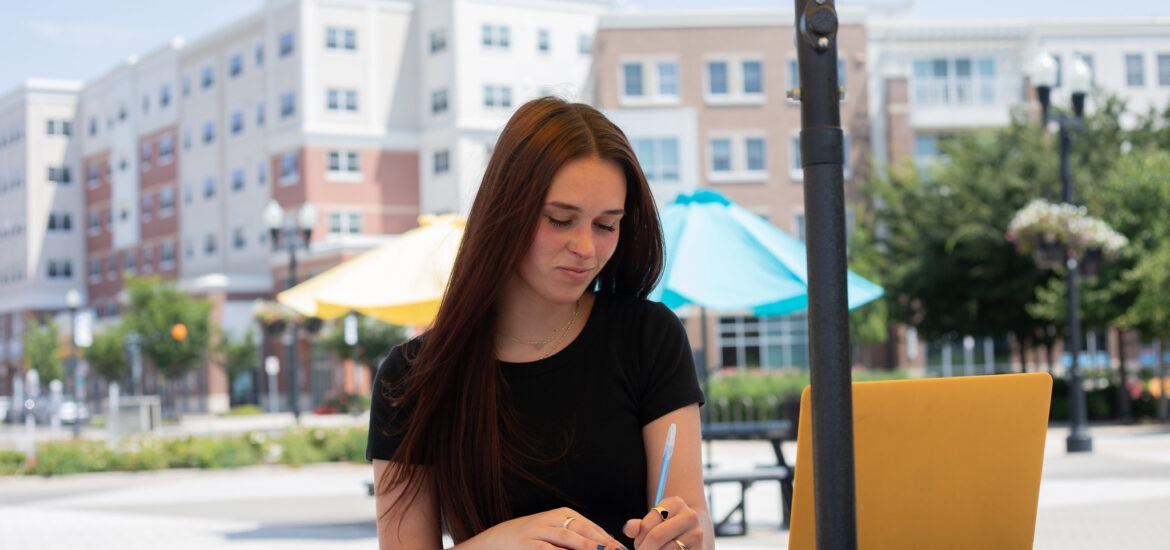What Makes an Online Business Administration Degree a Smart Investment? Wondering why you should earn a bachelor’s in business administration degree—and whether there’s a flexible way to do it? Rowan University’s 100% online Bachelor of Science in Business Administration (BSBA) program, with a Concentration in Global Business and Leadership, might be exactly what you’ve been […]
Big Dreams
First-Year Medical School Curriculum: One School’s Helpful Introduction
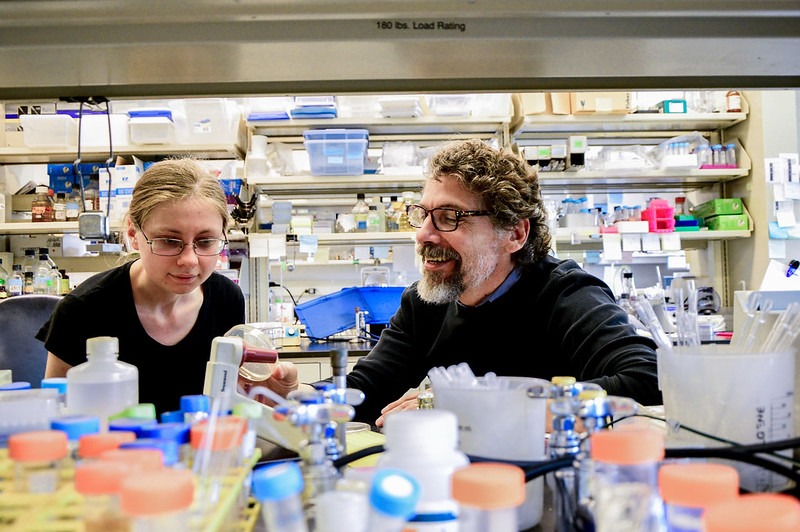
Center for Student Success (CSS) staff at Rowan-Virtua School of Osteopathic Medicine shares insight on student-focused approach An Associate Director, Academic Advisor/Coach, Stephanie Dearden provides advising and academic support to first- and second-year students on the Sewell, NJ, campus. She also oversees the SOM Tutoring Program, and coordinates the Pre-Matriculation and Guided Learning Groups Programs. Dearden […]
Can a Doctorate in Educational Leadership Help You Lead a Community College?
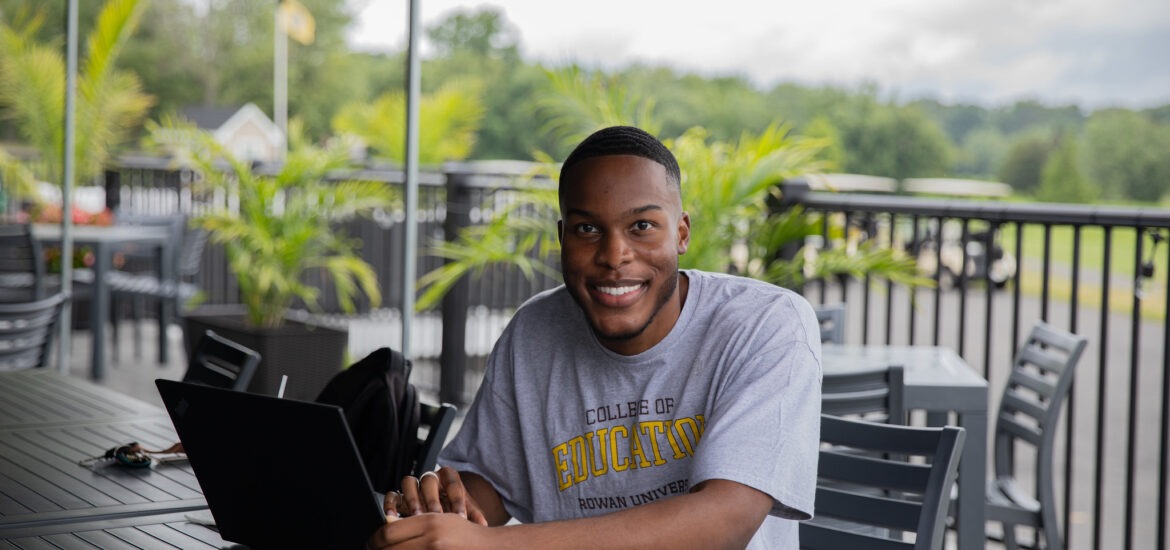
If you’re a higher education professional looking to grow your impact, you might be wondering: Can a doctorate in educational leadership help you become a dean of a college or lead a community college institution? Rowan University says yes. Our fully online Doctor of Education (Ed.D.) in Educational Leadership: Community College Leadership track is built […]
Can an Online Ed.D Help You Become a Principal or Superintendent?
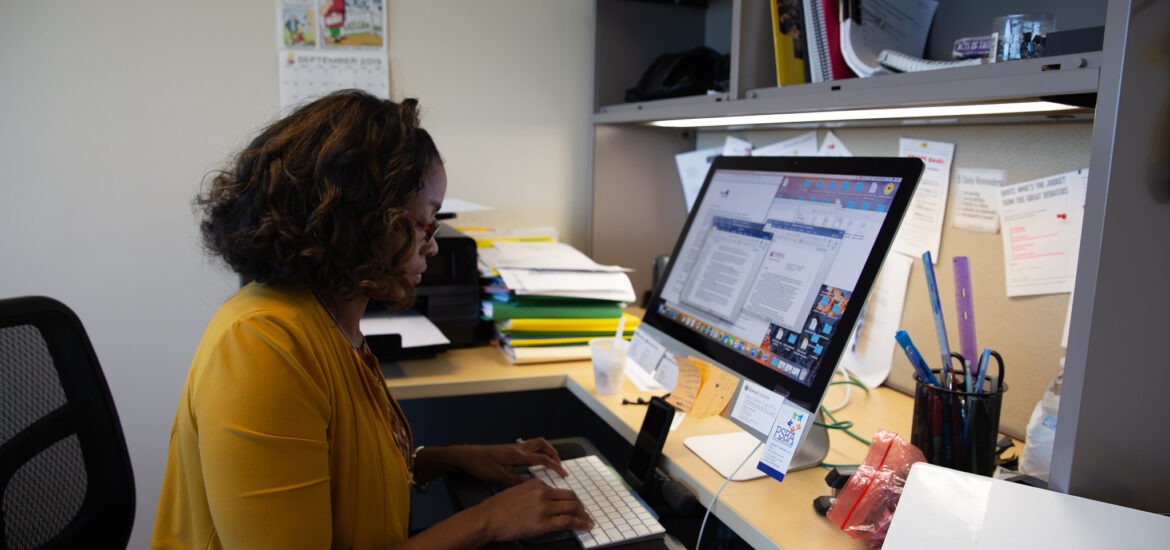
Are you an educator wondering if an online doctoral program in education can help you become a principal, assistant principal, or school superintendent? Rowan University says yes. Our fully online Doctor of Education in Educational Leadership: P-12 program is designed for busy professionals who are ready to lead meaningful change in schools and districts. Whether […]
How Sharing Books with Children Became One Man’s Mission
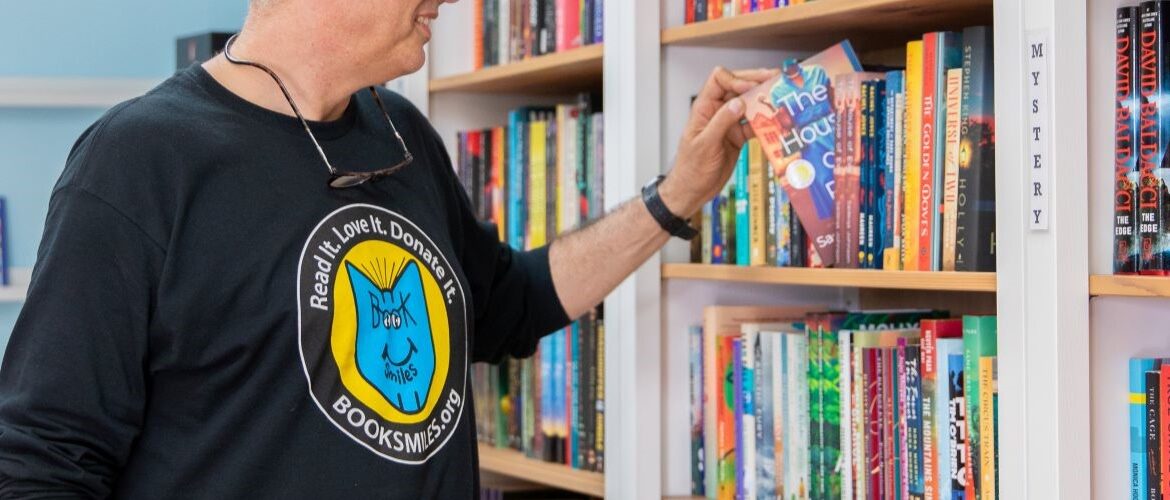
Founder of nonprofit BookSmiles has shared over 2 million books with local children Larry Abrams graduated from the College of Education’s Supervisor program in 2008, and has since gone on to found a remarkable nonprofit, BookSmiles. Here, he shares the story of how it came to be , how his experience at Rowan influenced him, […]
Can You Earn a Doctorate in Higher Education Online?
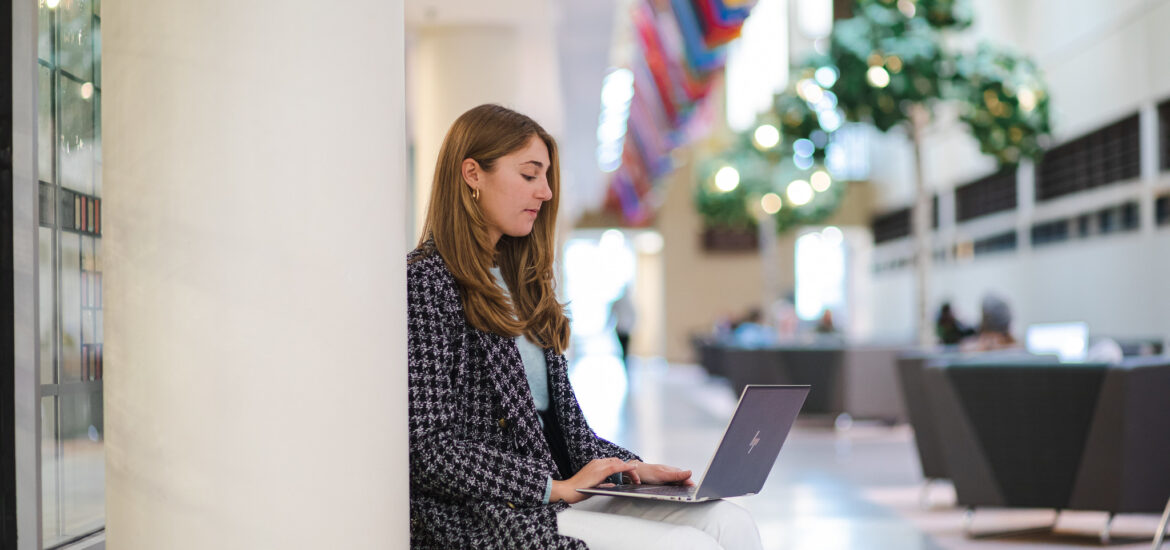
If you’re a higher education professional considering your next career move, you may be asking: Can you earn a doctorate in higher education online—and will it truly prepare you to lead? Rowan University says yes. Our fully online Doctorate in Higher Education is designed for real-world leaders ready to drive change in colleges, universities, and […]
Holocaust & Genocide Education Scholar Leads Study Abroad Programs
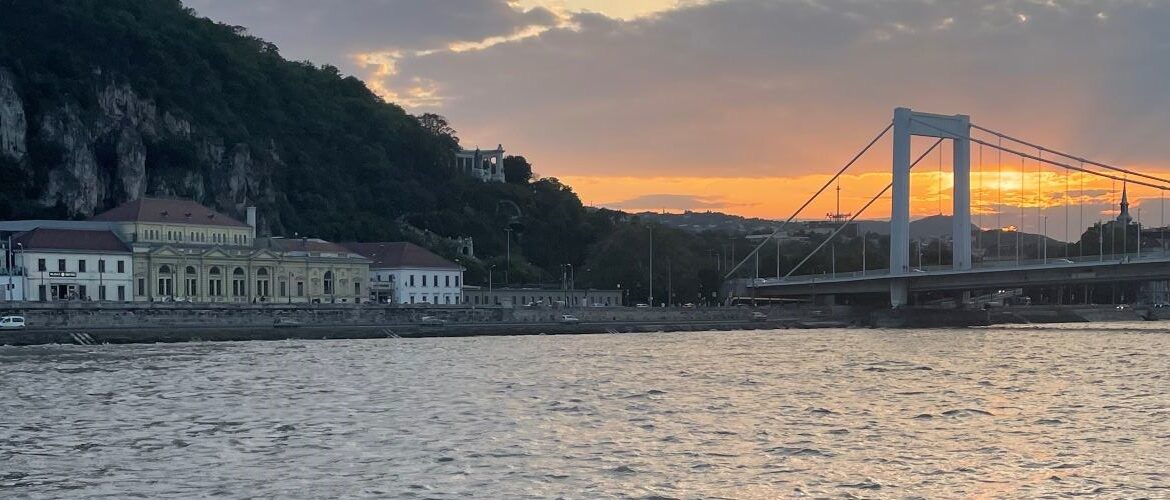
Rowan University History Professor Curates Impactful & Transformative Experiences for Students History professor and Associate Director for the Rowan Center for the Study of Holocaust, Genocide, and Human Rights Movements, Professor Jody Manning has crafted study abroad programs that promise an education far beyond the confines of a traditional classroom. His study abroad trips embody […]
My Favorite Class: Introduction to Electricity & Magnetism [VIDEO]
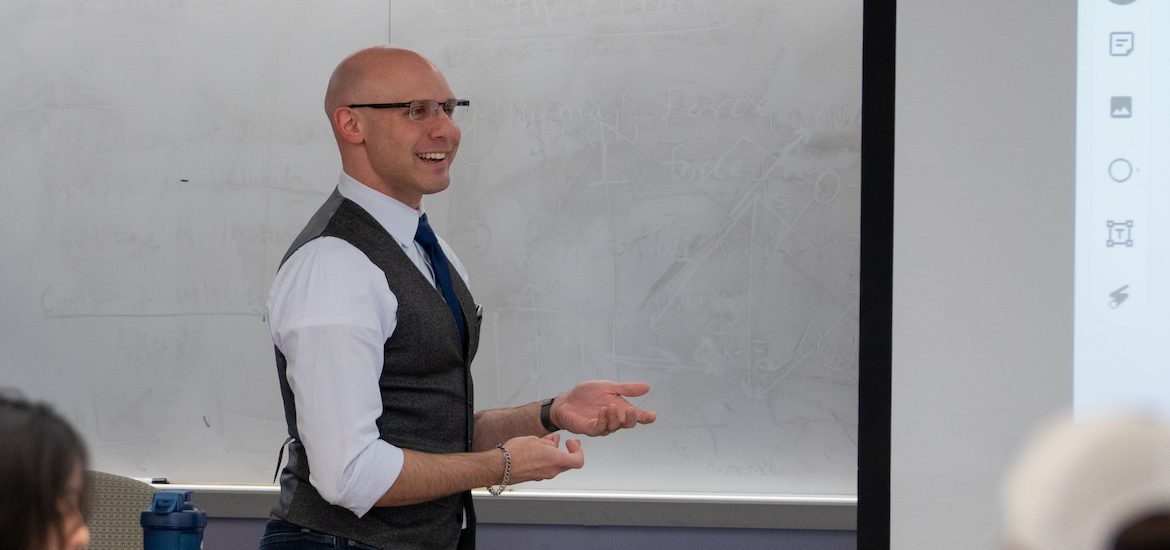
This story is a part of the “My Favorite Class” series. With 100+ majors and countless areas of faculty expertise across campus, dip into one of these classes to fulfill your Rowan University course requirements. Meet sophomore Vanessa Hutchinson, a Mechanical Engineering major. She is here to share her experience in her favorite class, Introduction to […]
What Jobs Can You Get with an Online Criminology Degree?
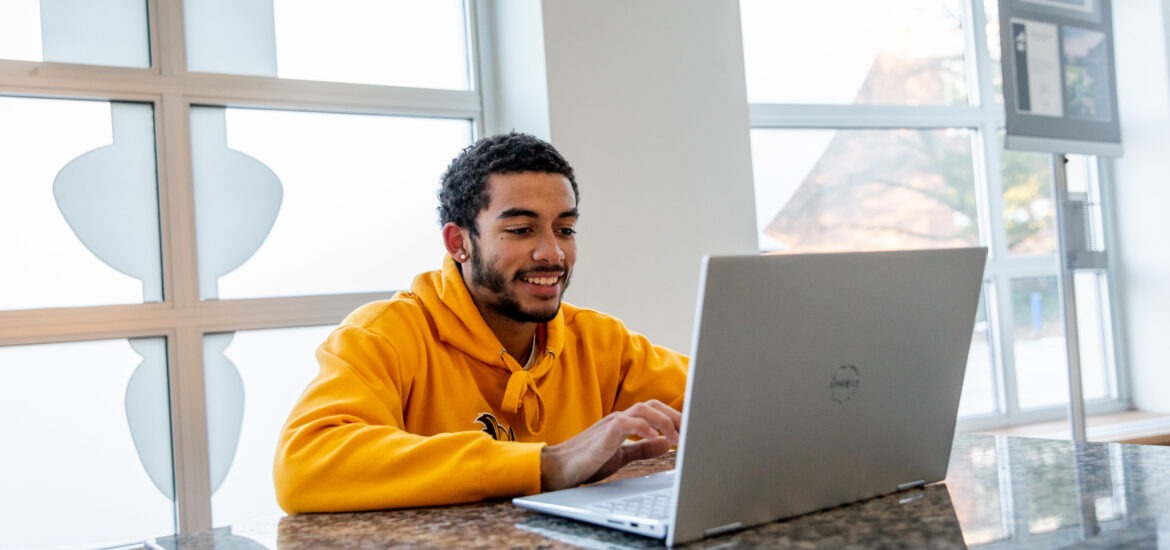
Career Paths You Can Pursue with a Criminal Justice Degree If you’ve ever been curious about working in law enforcement, the court system, corrections, or security services, earning an online criminology degree can open doors to exciting career paths. But what exactly can you do with a criminal justice degree? Let’s explore the opportunities available […]
Choosing the Right Online Doctorate in Education Program
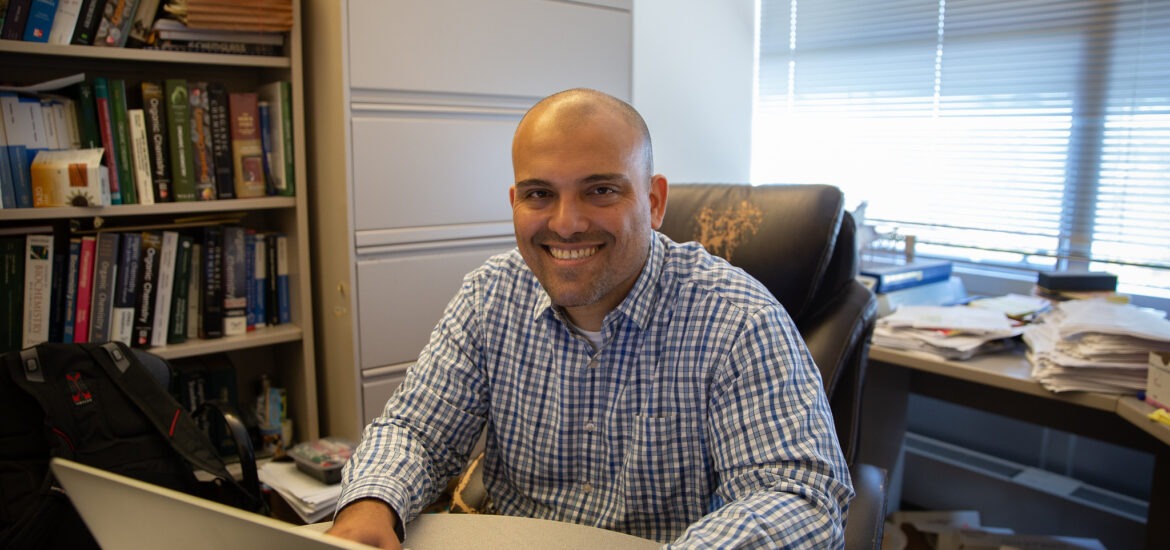
Finding the Ed.D. Program That Fits Your Goals and Your Life Pursuing an Ed.D. online is more than just earning another degree—it’s a transformative journey that prepares you to become a leader, innovator, and change-maker in education. Whether you dream of shaping policy in higher education, leading a school district, strengthening community college programs, or […]
- Engineering
- ...
What Construction Managers Do—and Why a Construction Management Degree Pays Off
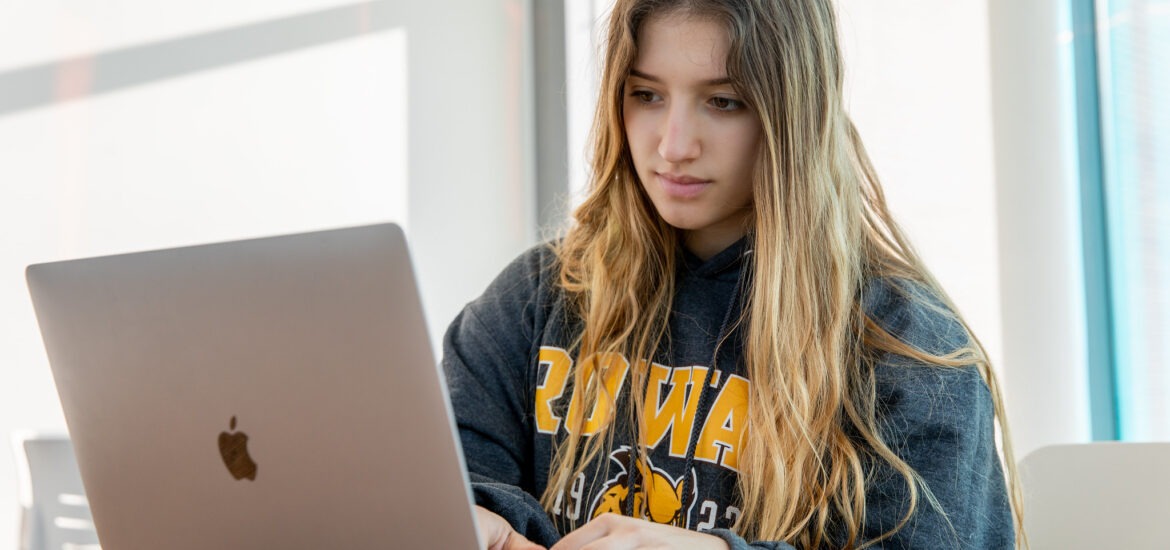
Build a Stronger Future with a Bachelor of Arts (B.A.) in Construction Management Interested in a career in construction management? Whether you’re already working in the field or just getting started, earning a construction management degree is a powerful way to advance your career, increase your earning potential, and move into leadership roles. In this […]
What Is a Liberal Studies Degree and Why Earn Yours Online?
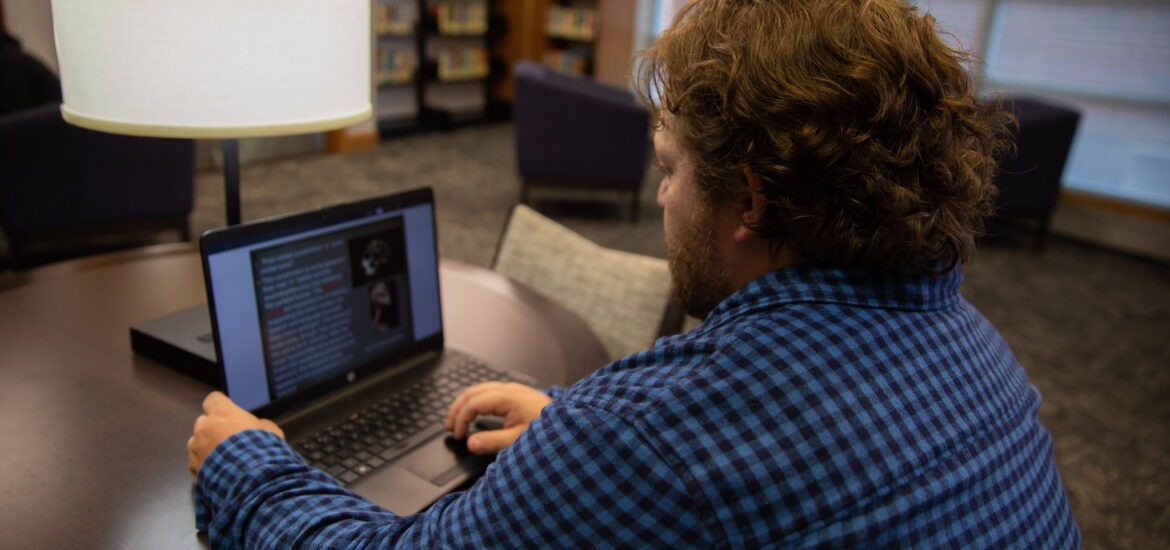
What Is a Liberal Studies Degree? If you’re wondering what a liberal studies degree is, it’s a degree that provides a versatile and well-rounded education that prepares students for a wide range of careers. It focuses on critical thinking, problem-solving, communication, and analytical skills, which are highly valued across industries. Unlike specialized degrees, a liberal […]
What Can You Do with a Bachelor of Science in Healthcare Administration?
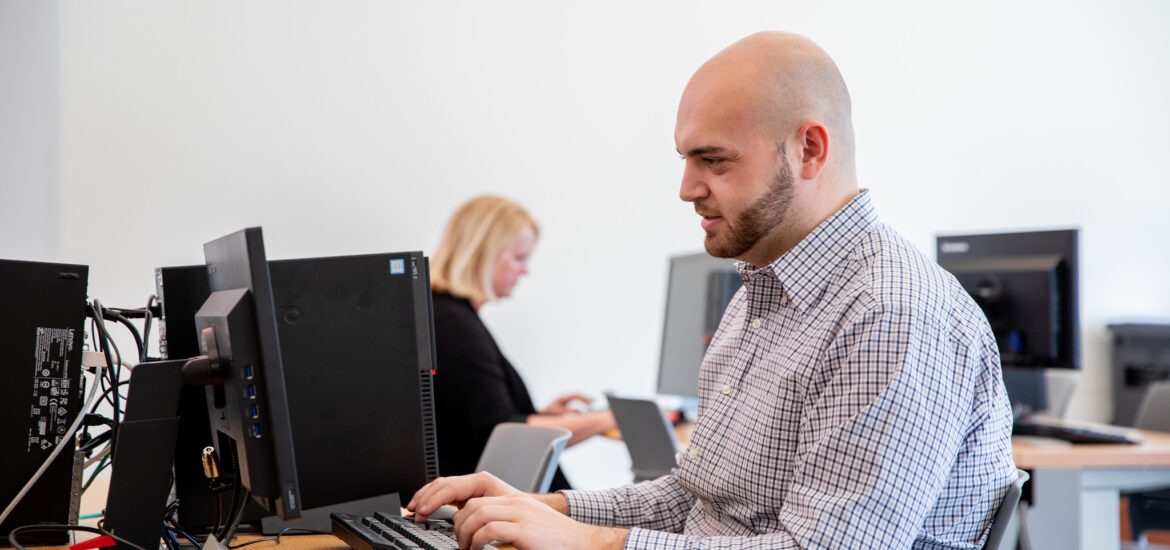
Build Your Career with a Bachelor of Science in Healthcare Administration Healthcare is more than just patient care—it’s about strong leadership, strategic decision-making, and innovation. The success of hospitals, clinics, and public health organizations depends on skilled leaders who can improve patient care, manage healthcare teams, and drive organizational success. If you’re looking for a […]
Can I Become a Data Analyst with Online Courses?
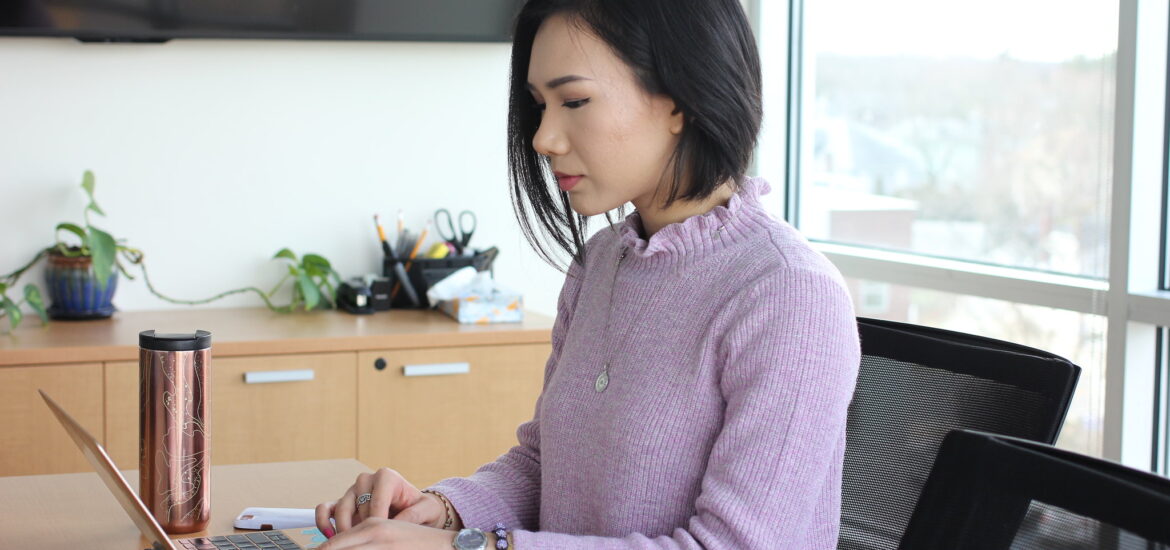
Starting a Career in Data Analytics: What You Need to Know Every industry today—from healthcare and finance to technology and retail—relies on data-driven decision-making to stay competitive. Businesses are constantly gathering massive amounts of data, but having data isn’t enough. Companies need skilled professionals who can analyze it, extract insights, and use it to drive […]
Is an M.Ed. in Teacher Leadership Worth Getting? Here’s What You Need to Know
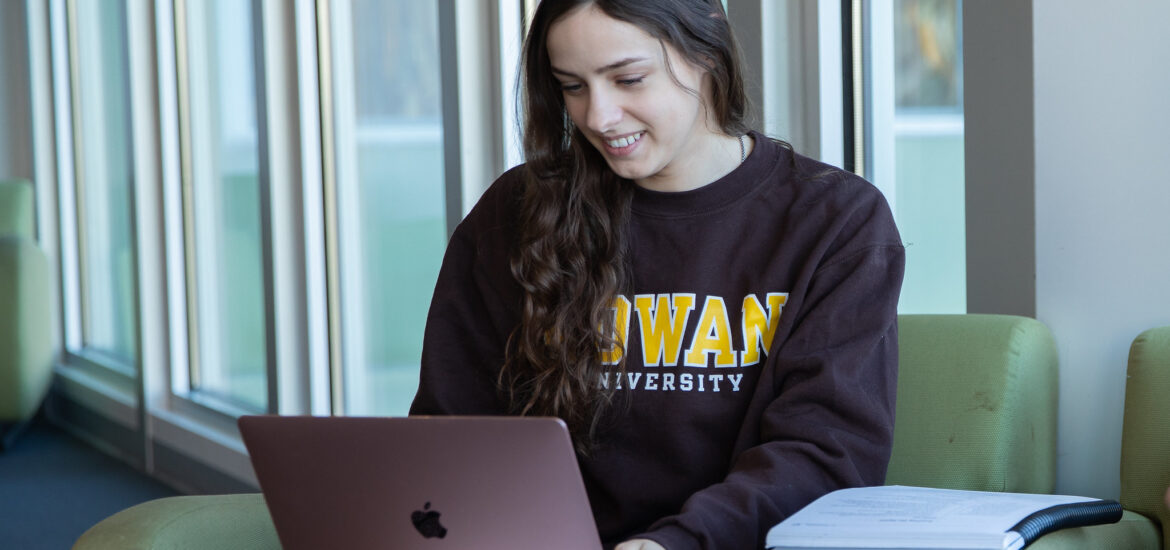
Ever Wondered How to Lead Without Leaving the Classroom? As a teacher, you pour your heart into your students every day. You create a safe space for learning, foster curiosity, and build the foundation for their futures. But deep down, you may be wondering: That’s exactly what a Master of Education (M.Ed.) in Teacher Leadership […]
Why an Online Master’s in Cybersecurity Is a Smart Career Move
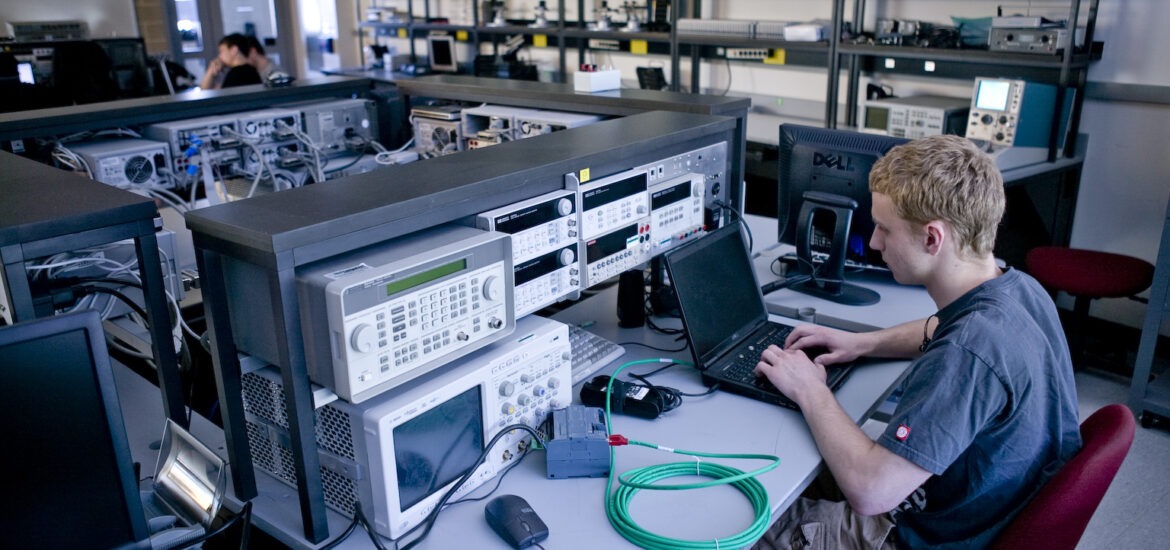
How an Online Master’s in Cybersecurity Prepares You for the Future In our increasingly digital world, the need for skilled cybersecurity professionals is more critical than ever. As cyber threats evolve and technology advances, skilled professionals are essential for protecting sensitive data and digital assets. An online Master’s in Cybersecurity gives graduate students the expertise […]
How a 100% Online MBA Empowers Business Leaders to Grow
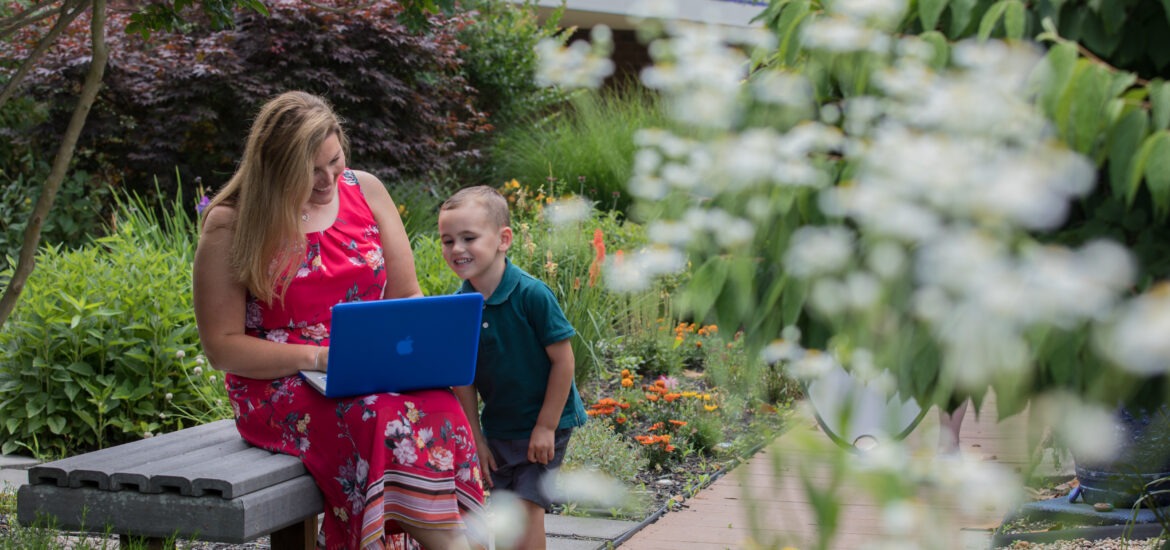
Grow Your Career and Lead with Confidence Through an Online MBA If you’re a business leader—or aspiring to become one—earning your MBA online can be a game-changer. Rowan University’s 100% online Master of Business Administration (MBA) program empowers working professionals to grow their careers, lead with confidence, and make a greater impact—all without putting their […]
13 Powerful Reasons to Get Your Bachelor of Psychology Degree Online
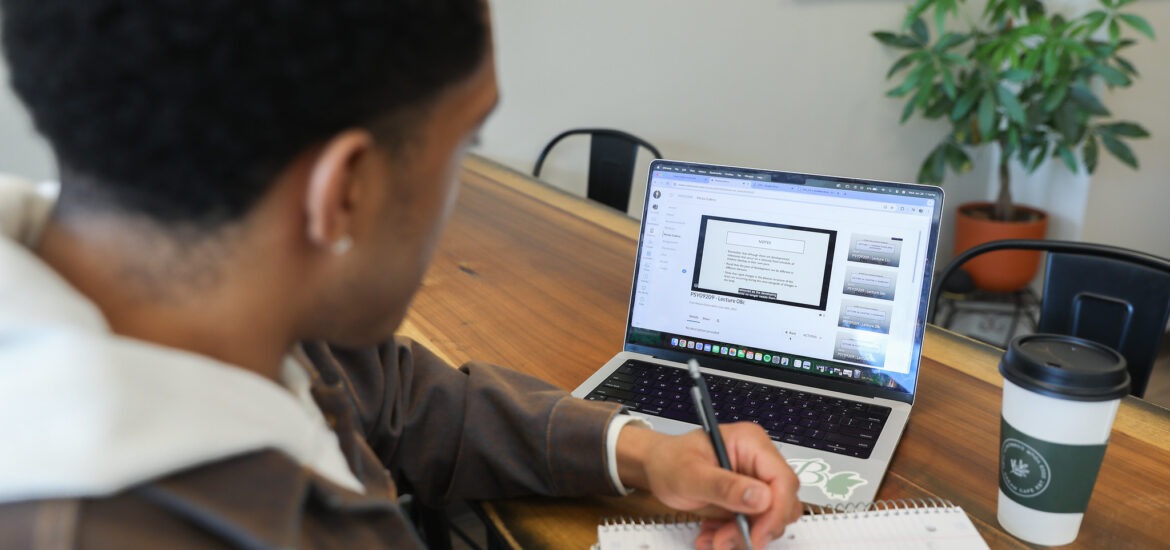
Can You Really Get a Bachelor of Psychology Degree Online? Let’s start with a popular question: Can you get a bachelor of psychology degree online? Yes! Earning your bachelor of psychology degree online is not only possible but also an increasingly popular option for students seeking flexibility and career advancement. Accredited programs, like Rowan University’s […]
What Does a Data Analyst Really Do? (And How to Become One)

The Rising Demand for Data Analysts Every business, from startups to Fortune 500 companies, relies on data analytics to make smarter decisions. Whether it’s predicting customer behavior, streamlining operations, or identifying market trends, organizations need skilled professionals who can transform raw data into valuable insights. That’s where data analysts come in. They play a crucial […]
12 Exciting Jobs You Can Pursue with an Online Psychology Degree
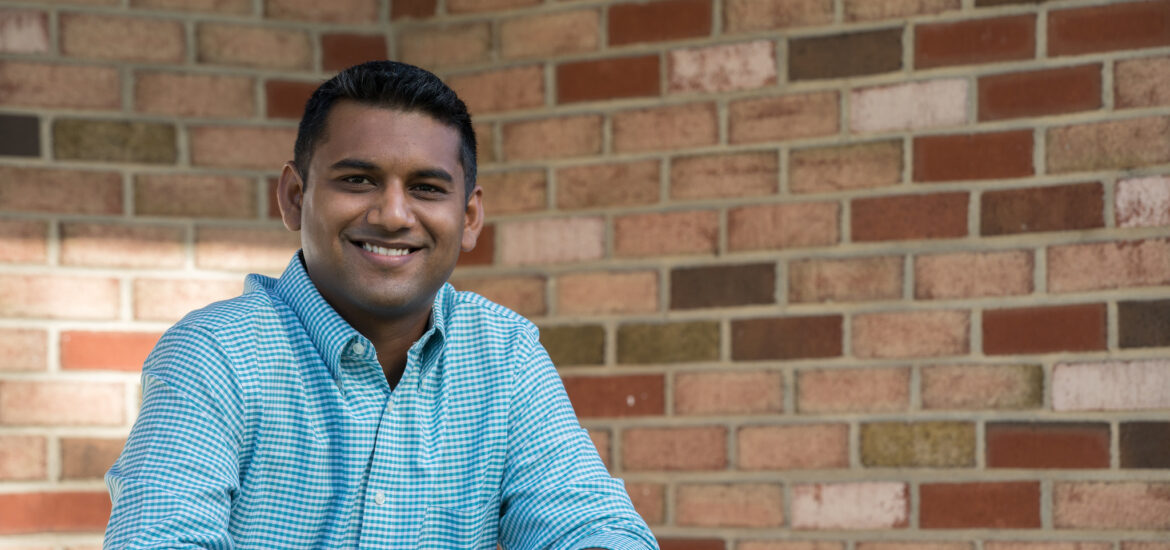
How an Online Psychology Degree Can Open Doors for You Thinking about earning an online bachelor’s degree in psychology but unsure where it can take you? From mental health counseling and forensic psychology to corporate leadership, an online psychology degree can unlock a range of rewarding careers. Accredited programs such as Rowan University’s online psychology […]
10 Eye-Opening Reasons to Get an Online Criminal Justice Degree
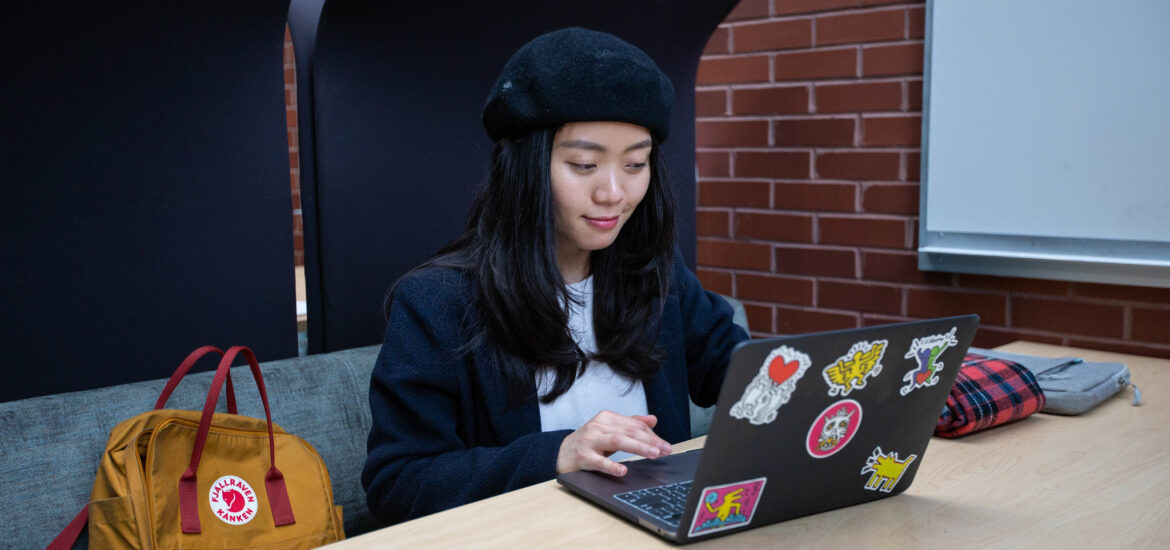
Should I Get My Bachelor’s Degree in Criminal Justice Online? Criminal justice is a growing and dynamic field, offering opportunities in law enforcement, corrections, homeland security, and the legal system. But with busy schedules and work commitments, many students wonder: Is earning a criminal justice degree online a smart choice? The short answer—yes! An online […]
15 Powerful Reasons to Enroll in an Online MBA Program
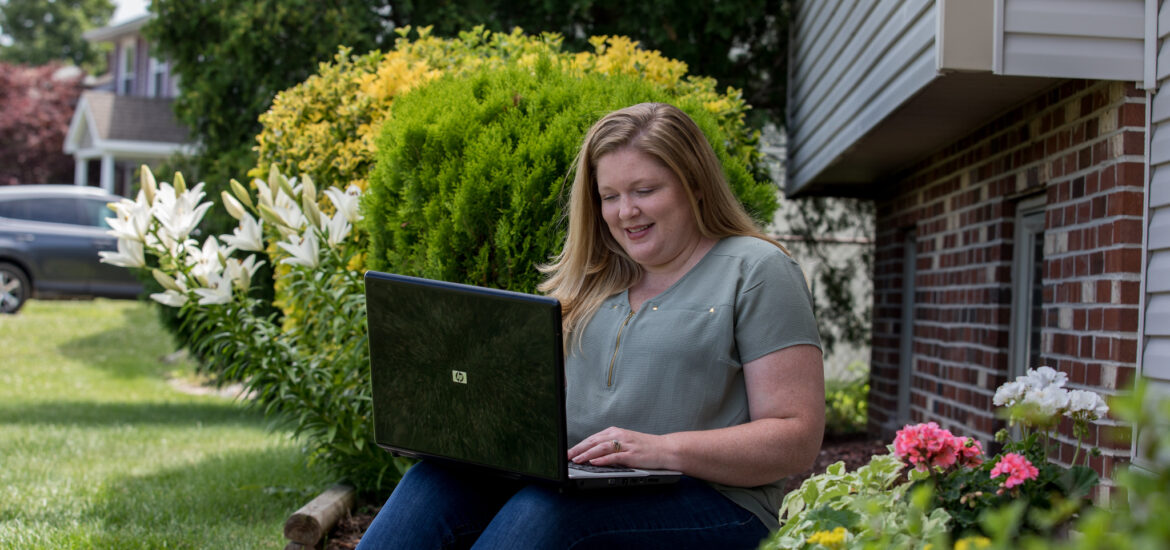
Why Working Professionals Choose Online MBA Programs Online MBA programs have become a powerful way for working professionals to gain advanced business skills, increase their earning potential, and move into leadership roles—without putting their careers on hold. In today’s competitive job market, experience alone isn’t always enough. Employers are looking for professionals with the strategic […]
Online Computer Technology Degrees: What You Need to Know
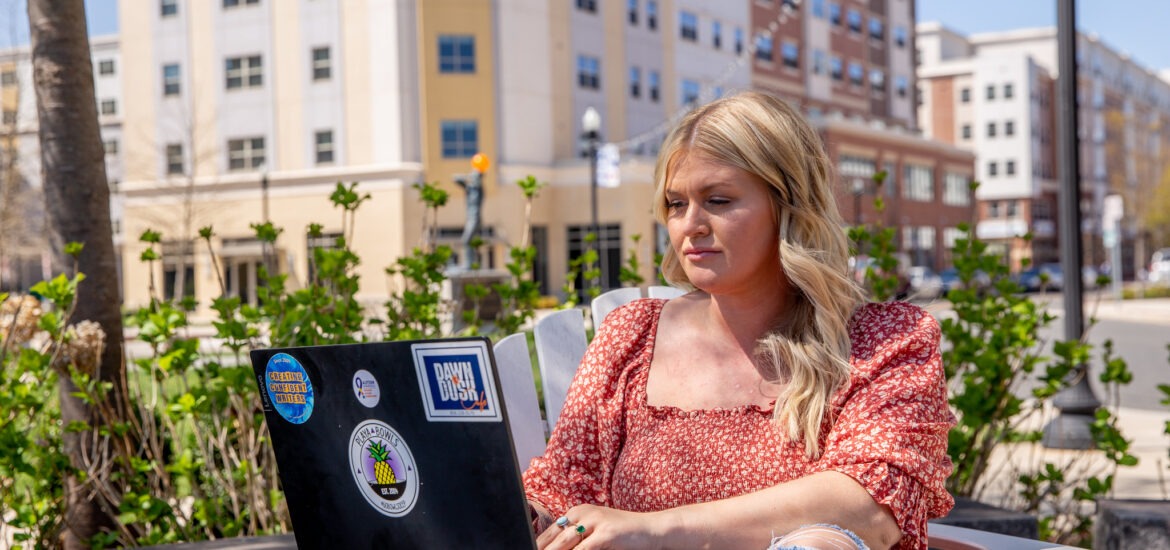
Is an Online Computer Technology Degree Right for You? Picture yourself in a career where you’re not just keeping up with technology—you’re driving it forward. Whether you’re analyzing business systems, solving cybersecurity challenges, managing IT networks, or supporting cutting-edge tech solutions, an online computer technology degree—or a bachelor’s in computer information systems— can help you […]
- Engineering
- ...
Why Now Is the Best Time to Get Your Online Construction Management Degree
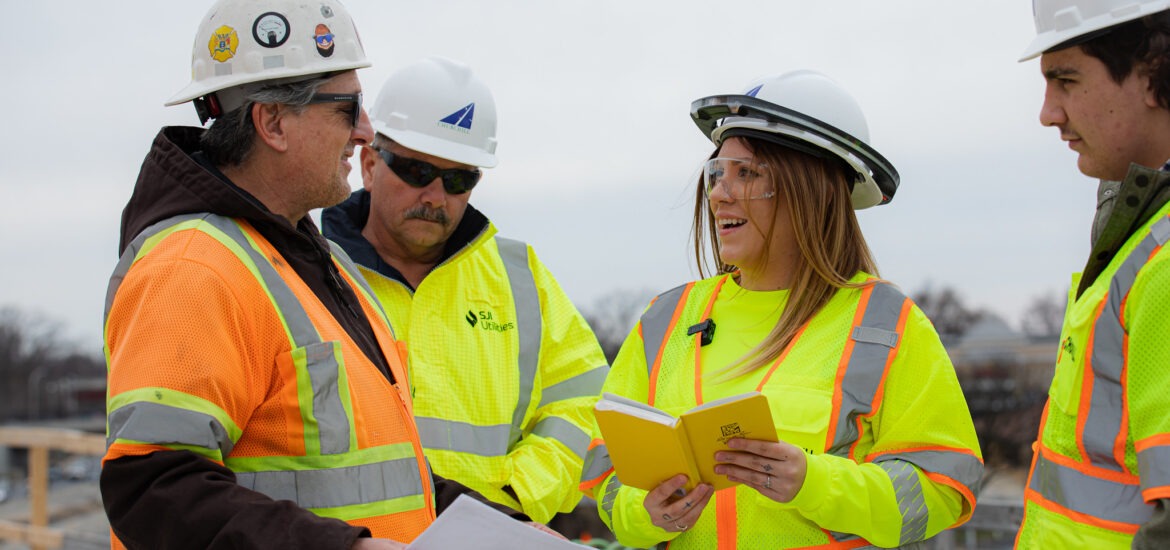
What Is Construction Management and Why Is It in Demand? The construction industry is growing quickly, and professionals with a construction management degree are in higher demand than ever. But what exactly is construction management, what do construction managers do, and why is an online construction management degree such a valuable path in 2025? Construction […]
- Engineering
- ...
10 Reasons an Online Master’s in Engineering Management is the Best Choice for Engineers
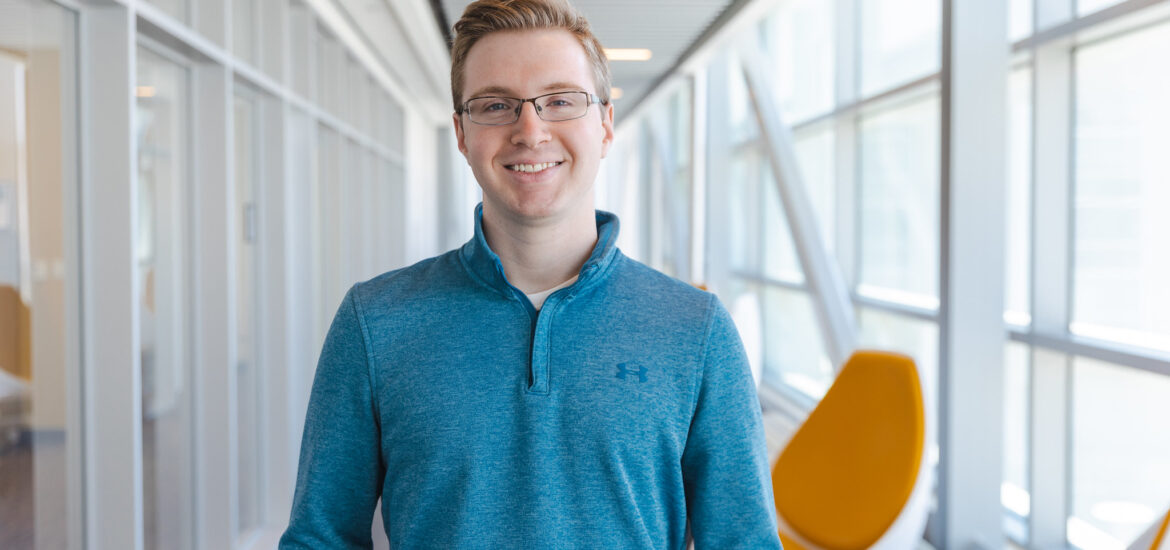
Why Engineers Are Getting Master’s Degrees in Engineering Management Engineers are innovators, problem-solvers, and future leaders. But to advance your career—whether that means moving into management, earning more, or leading major projects—you need more than technical expertise. An online Master’s in Engineering Management (MEM) helps engineers level up by combining technical skills with business, strategy, […]
What Is an Ed.D. and How Can It Prepare You for Leadership?
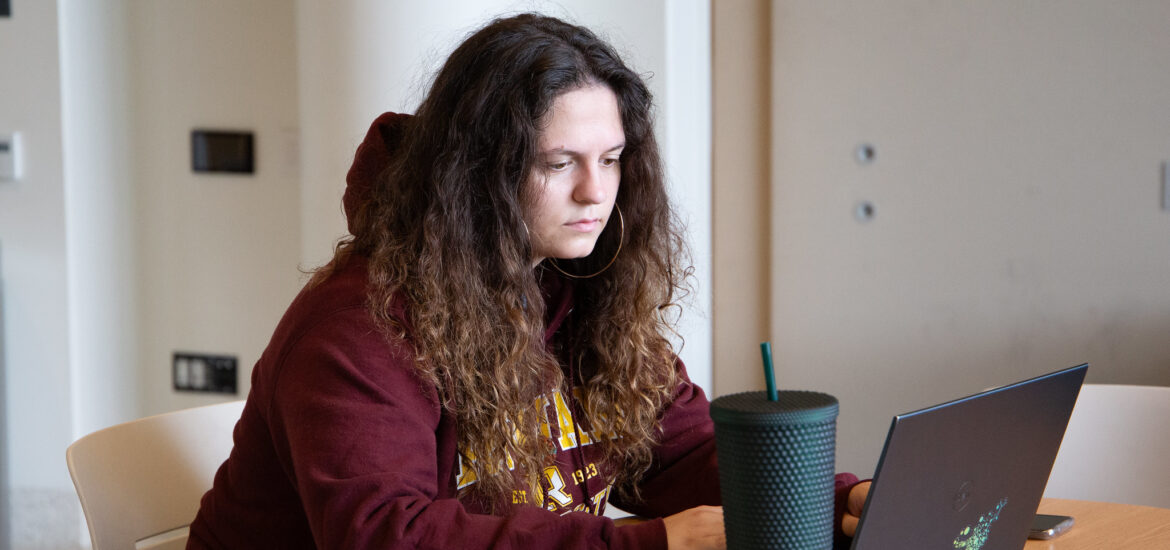
What is an Ed.D. Degree? A Doctor of Education (Ed.D.) is a terminal professional degree designed for educators, leaders, and school administration who seek to apply research-based strategies to real-world challenges in education. Unlike a Ph.D. in Education, which is typically research-focused and geared toward those pursuing careers in academia, an Ed.D. emphasizes practical application, […]
How to Become a Health and Wellness Coach Online
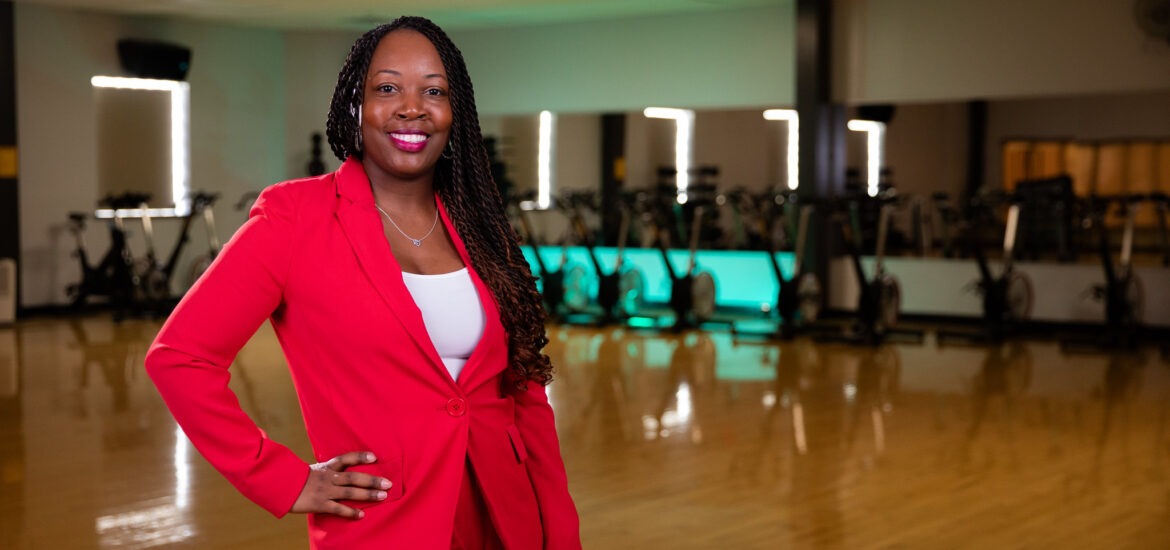
The Growing Demand for Health & Wellness Coaches Health and wellness coaching is a fast-growing, purpose-driven career that empowers you to help others live healthier, more fulfilling lives—without putting your own career or lifestyle on hold. As demand rises across healthcare systems, corporate wellness programs, and the fitness industry, more aspiring coaches are turning to […]
How to Become a Family Nurse Practitioner with an MSN Degree
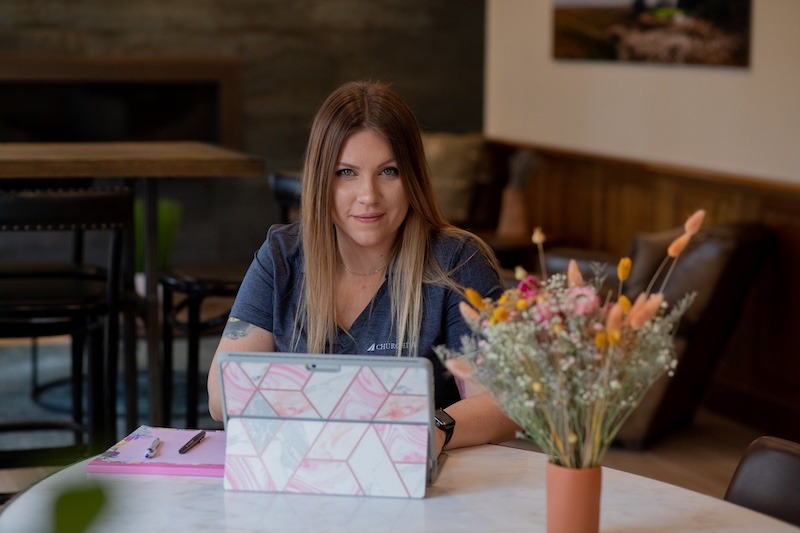
An MSN FNP Degree Opens Doors for Registered Nurses Looking to Advance their Careers An MSN Family Nurse Practitioner program will prepare dedicated nursing professionals for advanced practice roles in diverse healthcare settings. Rowan University’s nurse practitioner program combines rigorous academic training with hands-on clinical experience, ensuring graduates are equipped to deliver high-quality patient care. […]
13 Great Reasons to Get Your Healthcare Management Degree
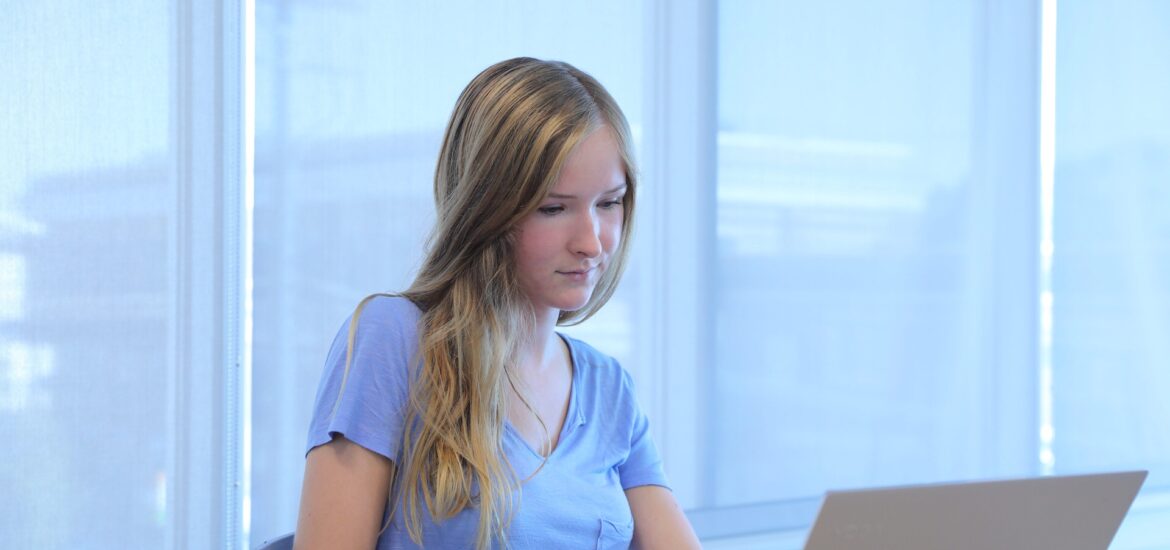
Are you ready to take the next step toward a brighter future? Whether you’re returning to school after a break or looking to advance in a fast-growing field, an online Healthcare Management Degree can be the key to unlocking your true career potential. At Rowan University, we understand the unique challenges adult learners face, and […]
MSN to NP: How to Become a High-Demand Nurse Practitioner
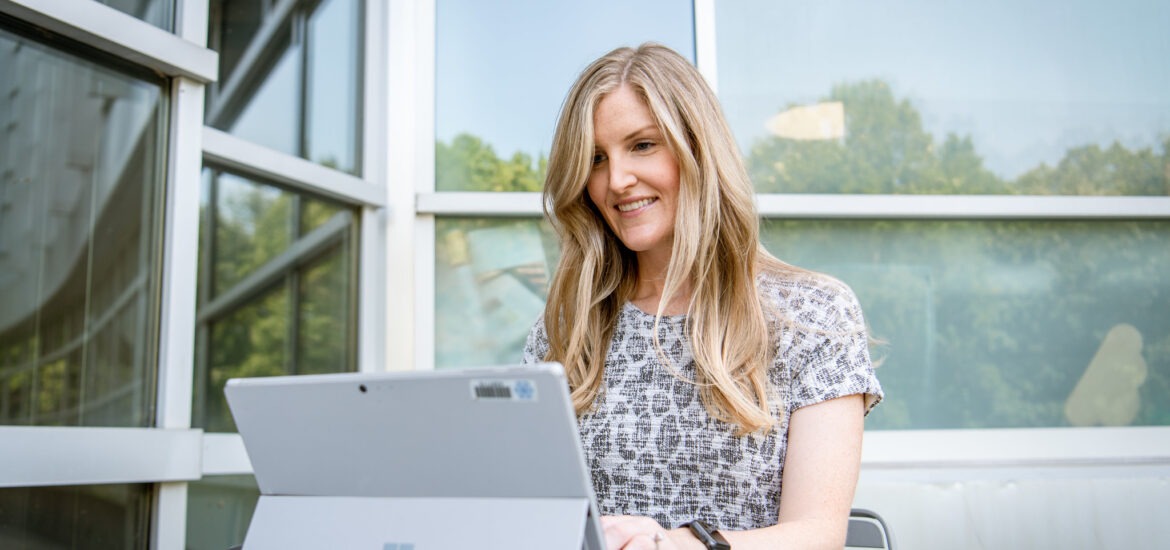
Earning a Master of Science in Nursing (MSN) with a focus on becoming a Nurse Practitioner (NP) opens new avenues, allowing you to provide advanced care and take on leadership roles. Here are the benefits of becoming an NP, admissions requirements for MSN to NP programs, an overview of what curricula look like, and the […]
Online Master’s in School Administration: Everything You Need to Know
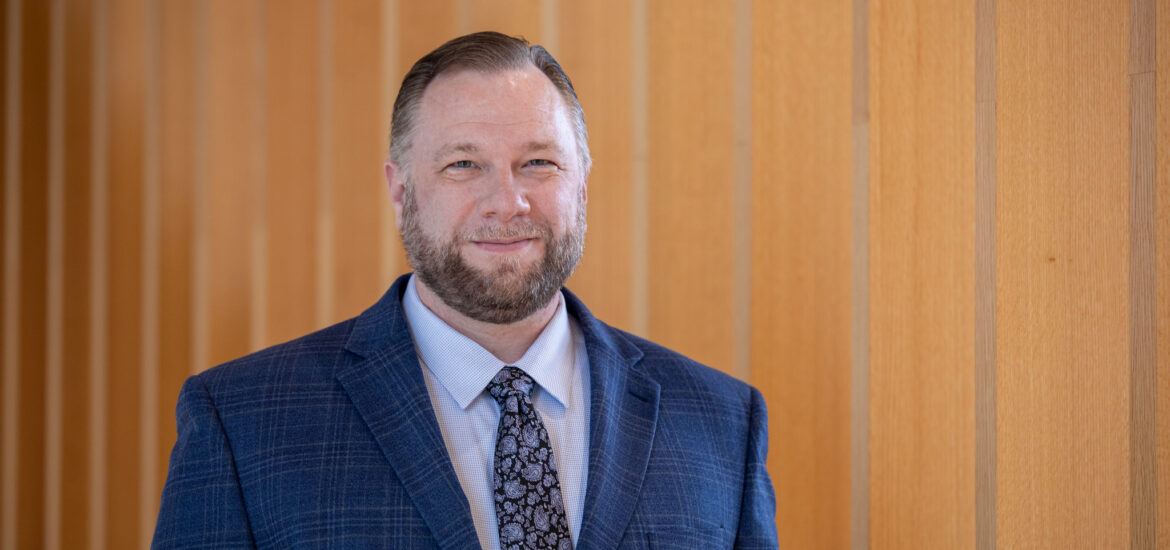
Why Get a Master’s in School Administration Online? If you’re passionate about leading schools, inspiring educators, and making a difference in students’ lives, earning a Master of Arts (M.A.) in School Administration could be the next step in your career. School leadership is about more than managing daily operations—it’s about creating a positive learning environment, […]
12 Benefits of Getting a Master’s in Special Education Online
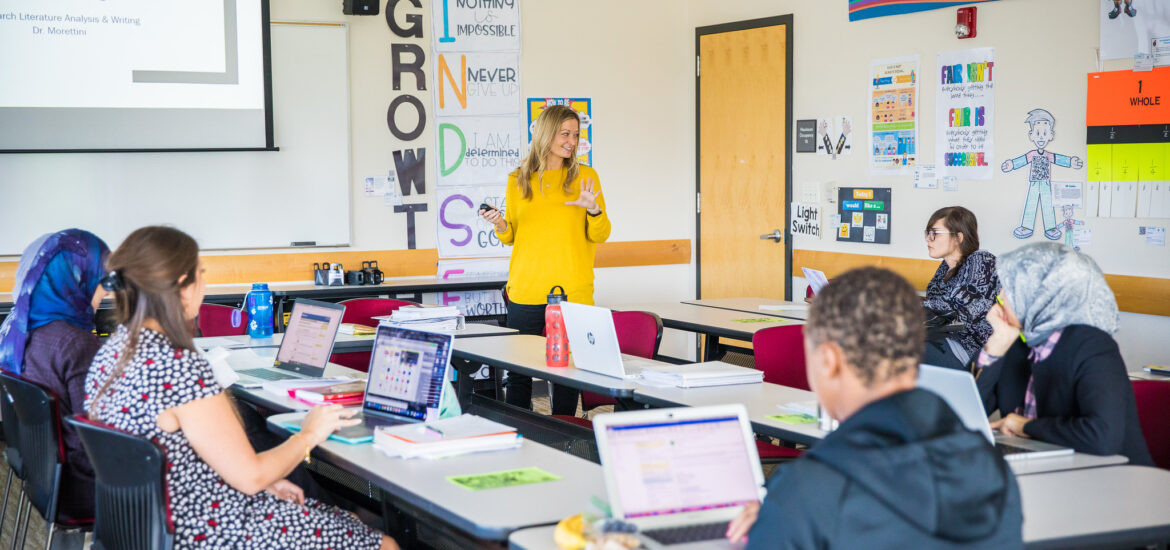
Why Earn Your Master’s in Special Education Online? Earning a Master’s in Special Education online is more than just an academic achievement—it’s a career-boosting opportunity that empowers educators to make a difference while expanding their own professional prospects. Rowan University’s Master of Arts (M.A.) in Special Education and Inclusive Practices is designed for new and […]
Finance Major Lands Prestigious International Internship
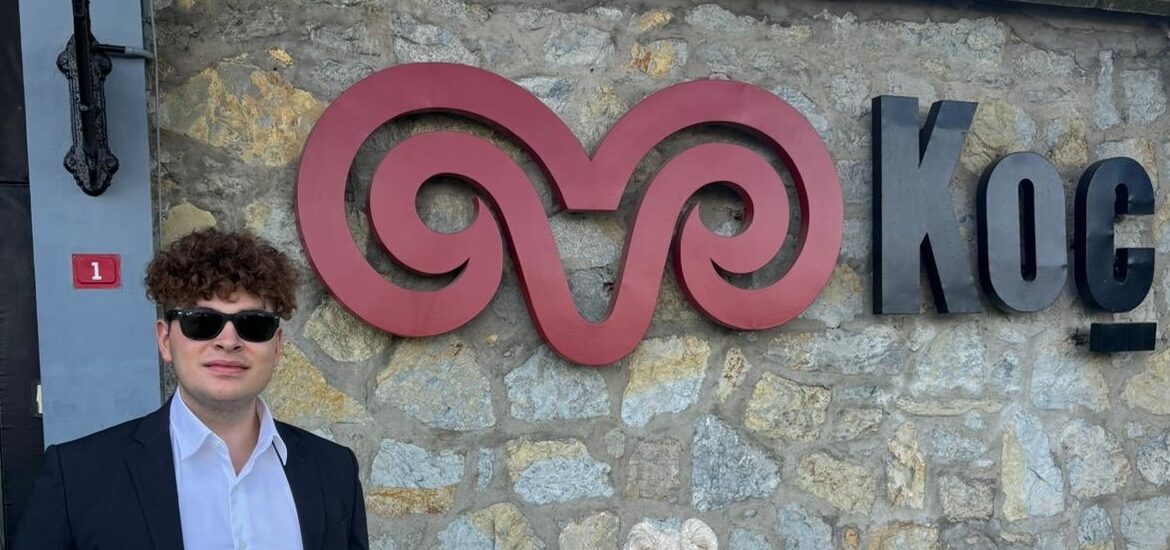
Tyler G. Shares His Summer Internship Experience with Turkey’s Leading Conglomerate Experiential learning takes many forms at Rowan University, including internships, student teaching, clinical and lab work, and research. Meet Tyler G., a Rowan University finance major with a minor in information systems and analytics. A go-getter who landed an incredible summer internship thousands of […]
How to Become a Geriatric Nurse
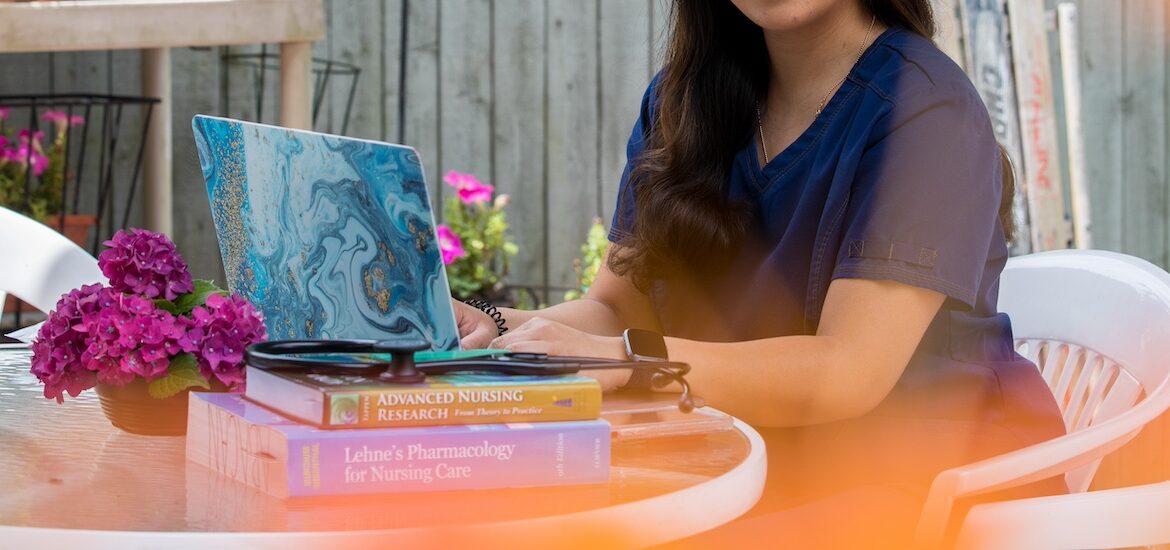
Earn Your Geriatric Nurse Degree Online and Step into a Rewarding Career As the population ages, the demand for skilled geriatric nurses continues to rise, making this a gratifying and essential career path. Geriatric nurses specialize in the care of older adults, addressing their unique health needs and improving their quality of life. If you’re […]
What Can You Do With A Data Science Degree? One Professor Explains The Possibilities [VIDEO]
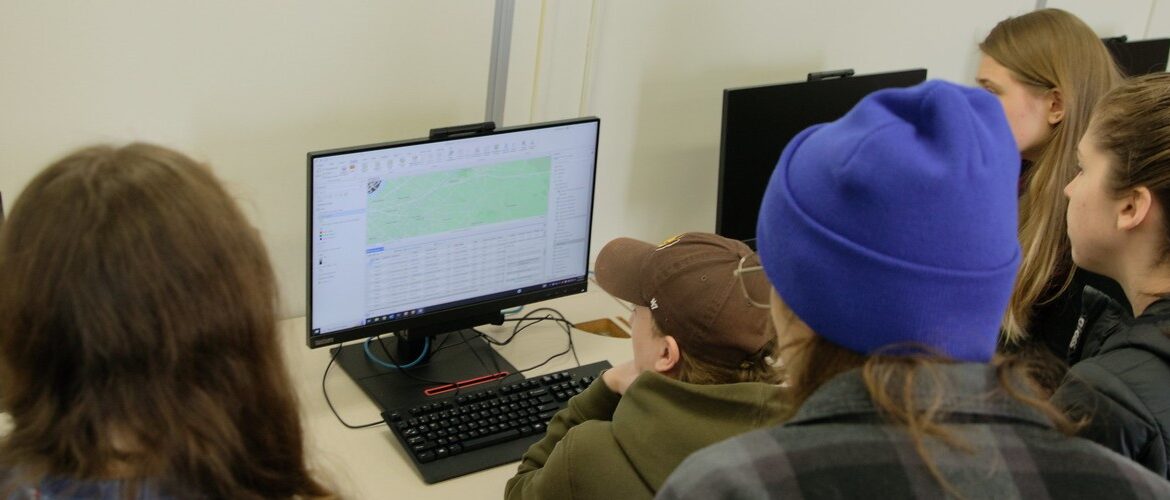
Data Science at Rowan University: Real-World Skills, Hands-On Experience, and Endless Career Opportunities Charalampos “Babis” Papachristou, Ph.D., is an Associate Professor and Assessment Coordinator for the College of Science and Mathematics at Rowan University. Here, he discusses the possibilities for careers and programs for students pursuing a Data Science degree at Rowan, whether those students […]
- Engineering
- ...
6 High-Demand Careers You Can Pursue with a Construction Management Degree
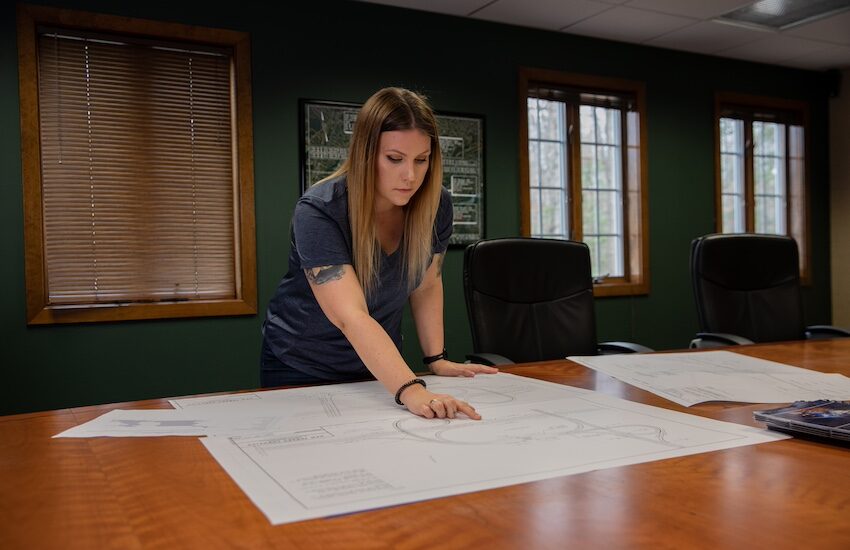
What Can You Do with a Construction Management Degree? A construction management degree opens doors to careers in project planning, cost estimation, site supervision, and real estate development—roles that are in high demand across residential, commercial, industrial, and infrastructure projects. With Rowan University’s fully online, flexible Bachelor of Arts (B.A.) in Construction Management, you can […]
How Long Does It Take to Get a Master’s in Nursing?
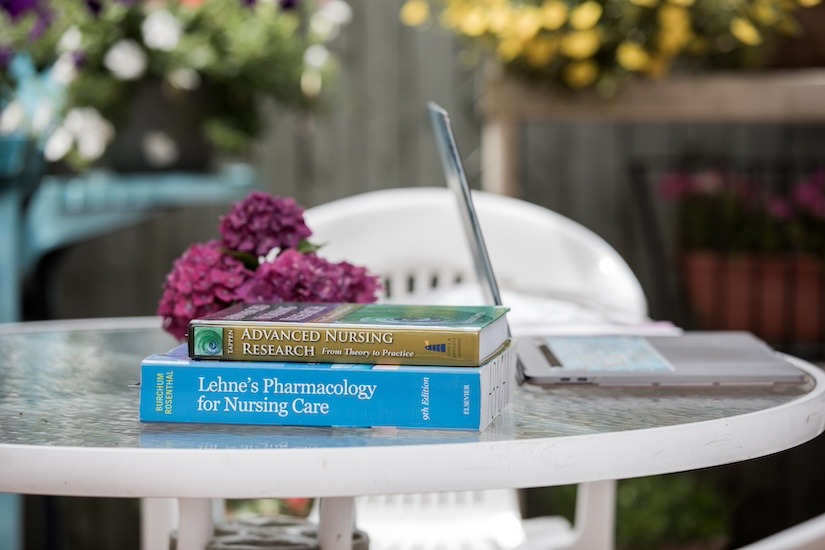
Understanding Your Personal Timeline to an MSN Degree At Rowan University, we understand the importance of advancing your nursing career. A master’s in nursing (also known as an MSN degree) not only prepares you for leadership roles but also allows you to specialize in critical areas of nursing. But how long does it take to […]
What Does an Adult Gerontology Nurse Practitioner Do?
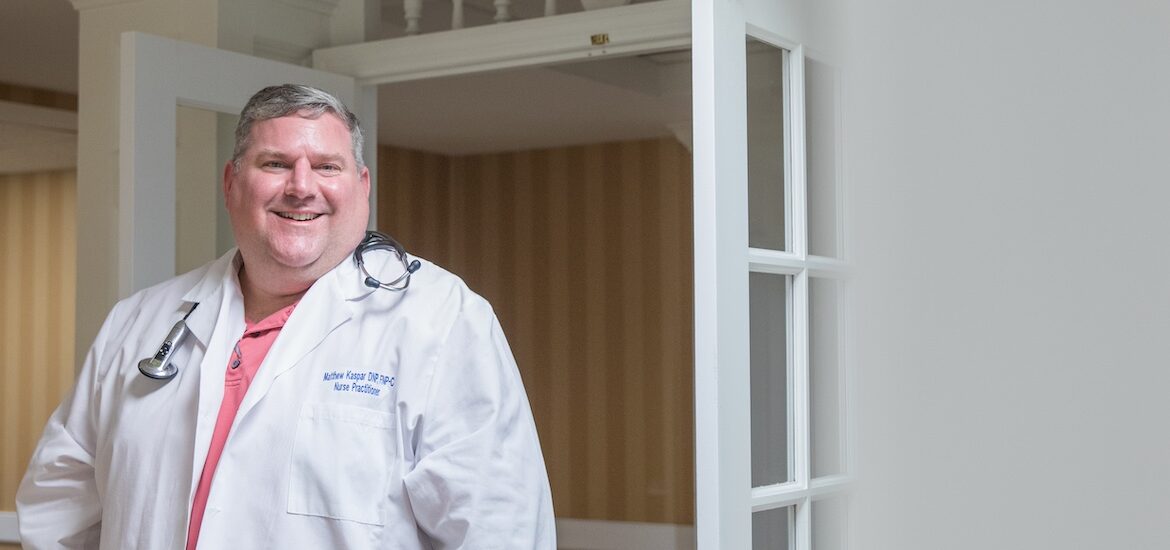
Introduction to What is an Adult Gerontology Nurse Practitioner As our population ages, the need for healthcare professionals specializing in adult and geriatric care grows significantly. Adult Gerontology Nurse Practitioners (AGNPs), also known as Adult Gerontology Primary Care Nurse Practitioners (AGPCNPs), are crucial in promoting health, managing chronic conditions, and providing comprehensive care to adults […]
A Guide: The Best Masters’ Degrees for Nurses
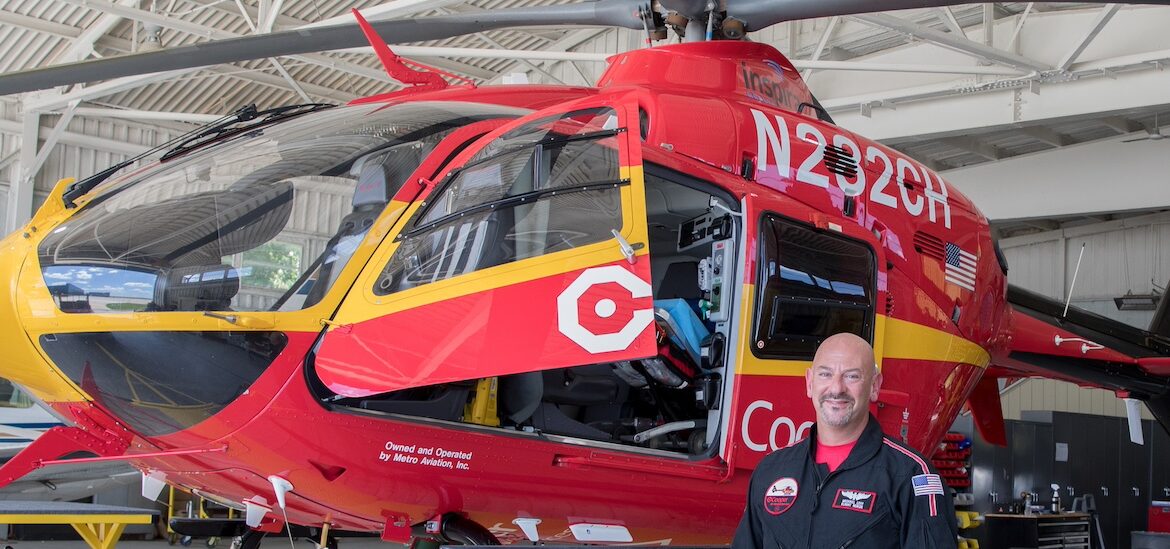
Understanding the Landscape of MSN programs to Advance Your Career As the healthcare landscape evolves, nurses aiming to elevate their careers increasingly turn to master’s degrees in nursing. Advanced qualifications not only enhance clinical expertise but also open doors to leadership roles, specialized practice areas, and improved patient outcomes. If you’re wondering why to choose […]
How a Computer Information Systems Degree Accelerates Your Career
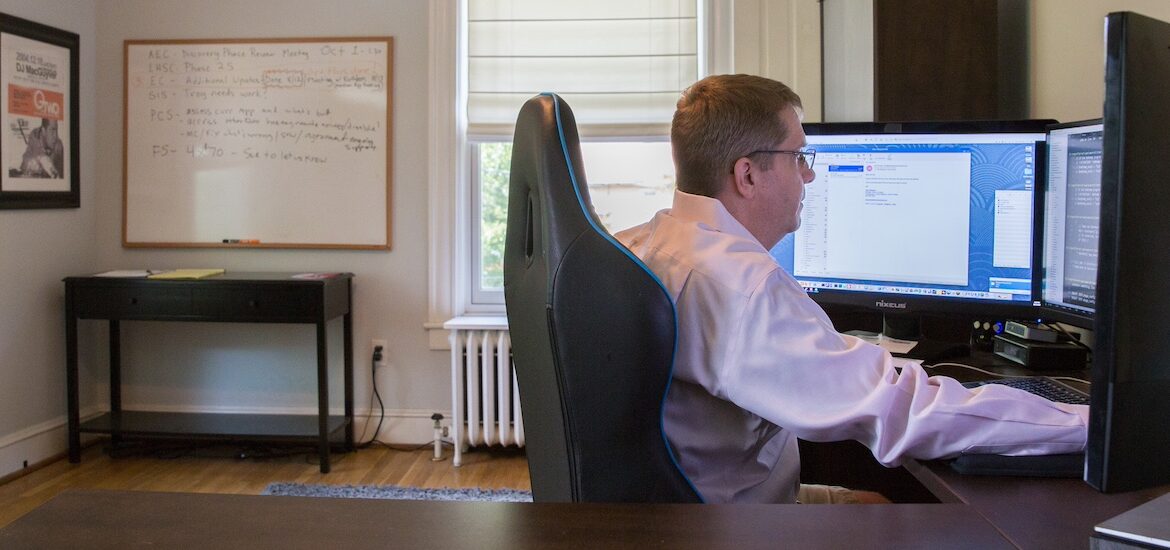
Rowan University’s Information Technology Degree Prepares Grads for Leadership Roles in IT In today’s rapidly evolving digital landscape, the demand for skilled leaders in Information Technology (IT) has never been higher. Earning a bachelor’s degree in computer technology helps job candidates stand out in a competitive field. Rowan University’s Bachelor of Arts (B.A.) in Computer […]
13 Insightful & Informative Reasons To Get an Online Cybersecurity Degree
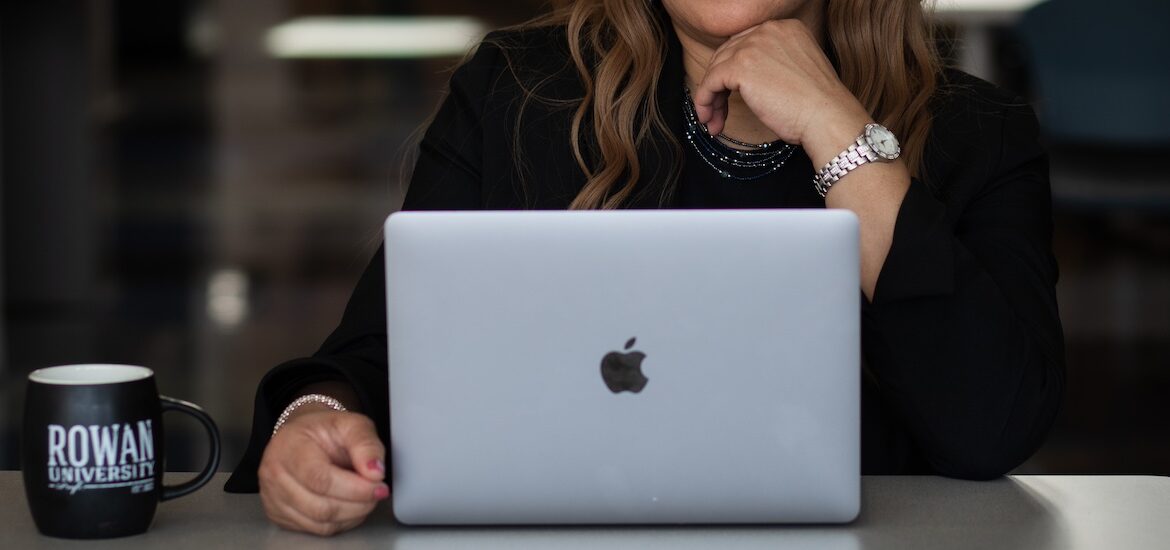
Rowan University Meets Growing Employer Demand Launching Its Online Master’s In Cybersecurity Degree Cybersecurity is one of the fastest-growing and most in-demand fields in today’s workforce. With the rise in cyberattacks and data breaches, professionals skilled in protecting digital information are critical to every industry. In 2024 alone, the United States experienced a significant number […]
From Student to Teacher: Miss Dauter Shares All About Her First Day Student Teaching
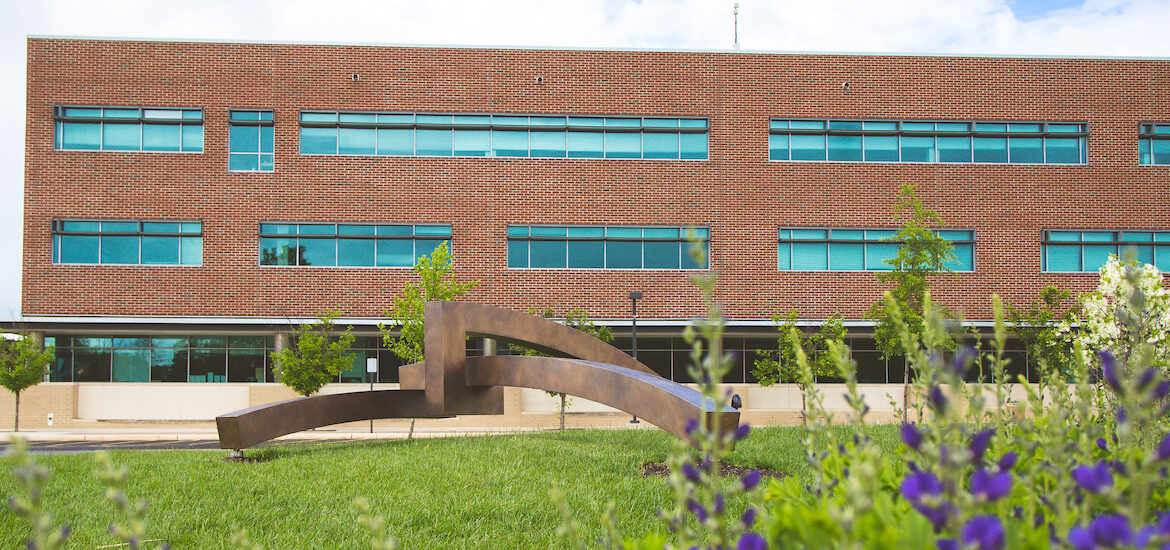
Experiential learning takes many forms at Rowan University, including internships, student teaching, clinical and lab work, and research. Meet Jordyn Dauter of Quakertown, PA (Bucks County), a Dance and Elementary Education double major with an honors concentration. Jordyn is here to tell us all about her first day of her student teaching field experience. The […]
- Engineering
- ...
What is Engineering Management? Key Roles, Responsibilities & Career Benefits
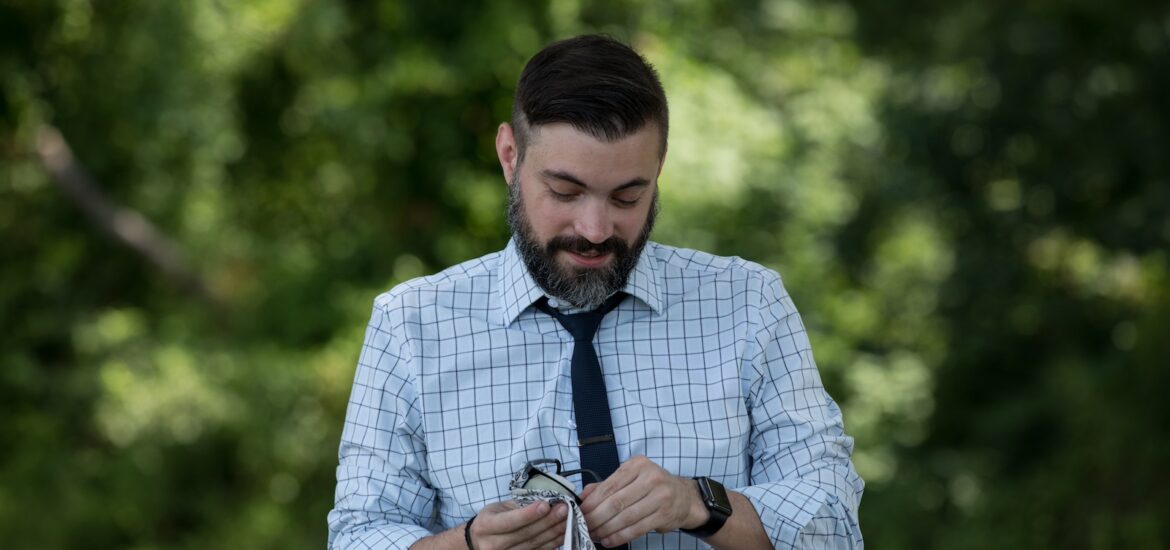
Engineering management is a fascinating field that combines engineering principles with business strategies to efficiently lead technical projects and teams. As we will outline, this discipline encompasses project management, resource allocation, budgeting, and strategic planning. Essentially, engineering managers bridge the gap between engineering and management, ensuring projects meet both technical specifications and organizational goals. As […]
What to Know About Becoming a Nurse Executive or Chief Nursing Officer
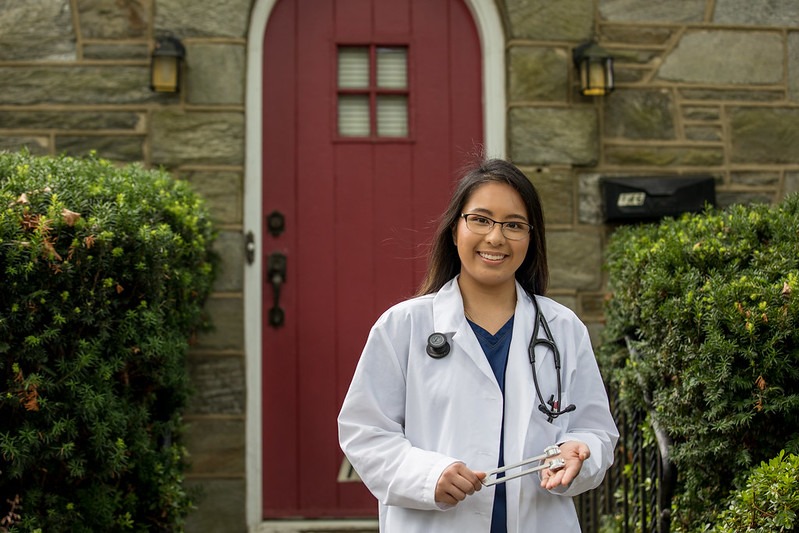
Rowan University’s Online M.S. in Nursing Places Chief Nursing Officer Within Reach In the dynamic landscape of healthcare, leadership is paramount. Nurse executives play a crucial role in shaping policies, managing teams, and ensuring the delivery of quality patient care. If you’re a registered nurse aspiring to ascend into executive roles, Rowan University’s online Master […]
Nurse Educators: Teaching the Future of Healthcare
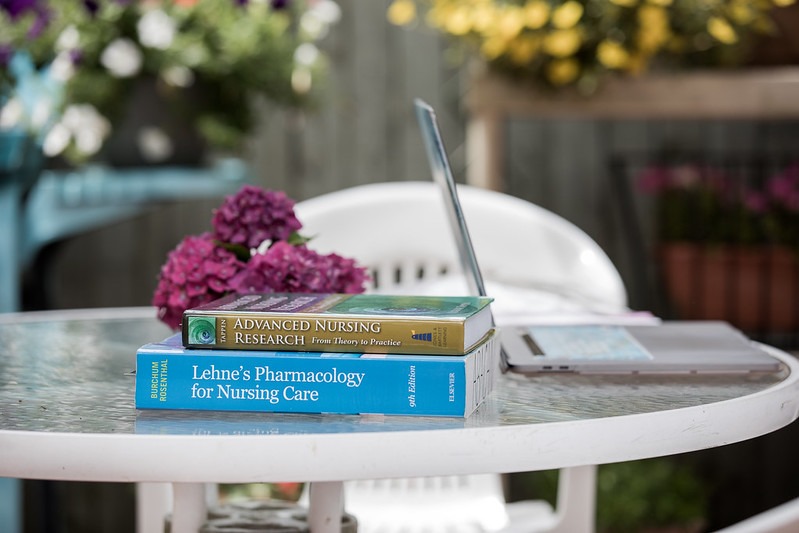
Embark on a rewarding personal and professional journey with Rowan University’s Online MSN Nurse Educator program In today’s rapidly evolving healthcare landscape, the role of nurses extends beyond bedside care to encompass leadership, research, and education. One pivotal position that merges clinical expertise with teaching acumen is that of the MSN Nurse Educator, also known […]
Alumni Success: Young Entrepreneur Megan Hilbert and Her Restaurant on Wheels [VIDEO]
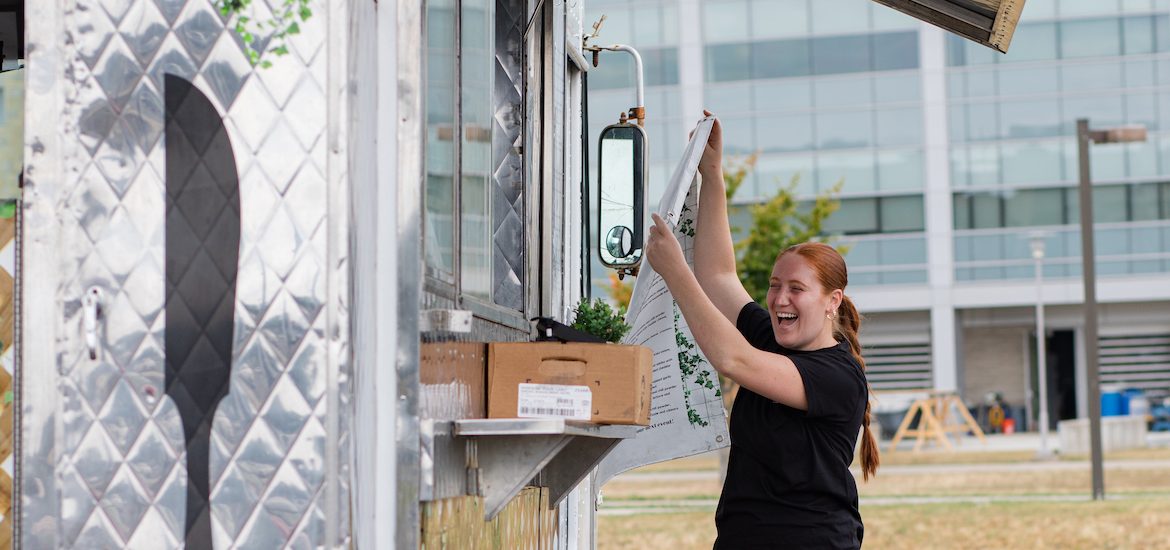
Communication Studies Alumna Leverages Her Education to Propel Her Business Idea Forward Meet 2018 Rowan University graduate Megan Hilbert, who graduated with a bachelor’s degree in communication studies and a minor in advertising. She is here to share with us her journey of starting “Red’s Rolling Restaurant” on wheels. Knowing that the program that I […]
What to Know About Becoming a Psychiatric Mental Health Nurse Practitioner
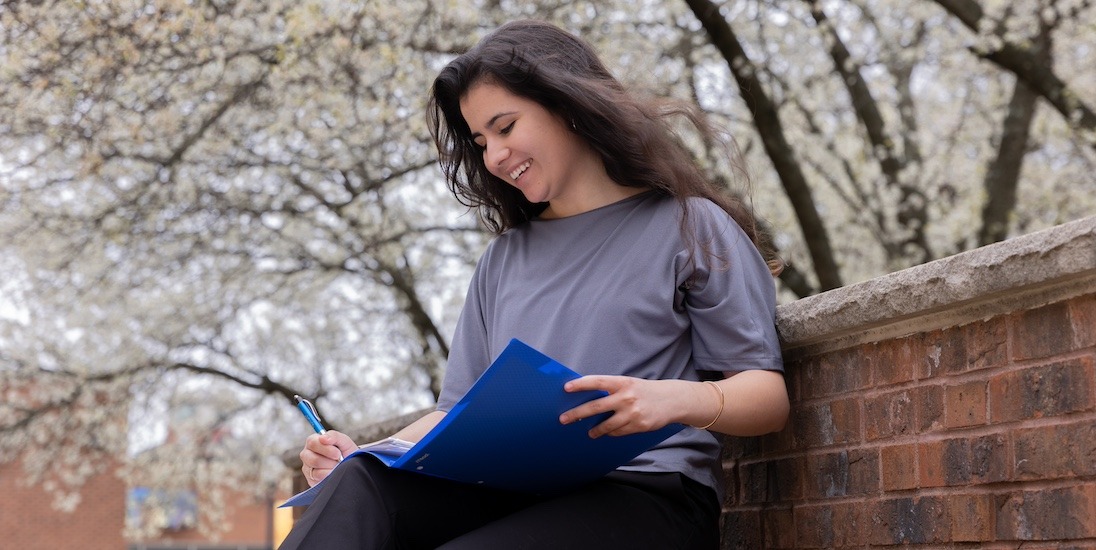
Impact Patients’ Lives as a Mental Health Nurse Practitioner Rowan University’s online Master’s in Psychiatric Mental Health Nurse Practitioner program equips nursing professionals with the tools to excel in the field of mental healthcare. The curriculum focuses on essential skills and knowledge for providing top-notch psychiatric services. With a strong emphasis on clinical practice, evidence-based […]
What Can You Do With an Anthropology Degree?
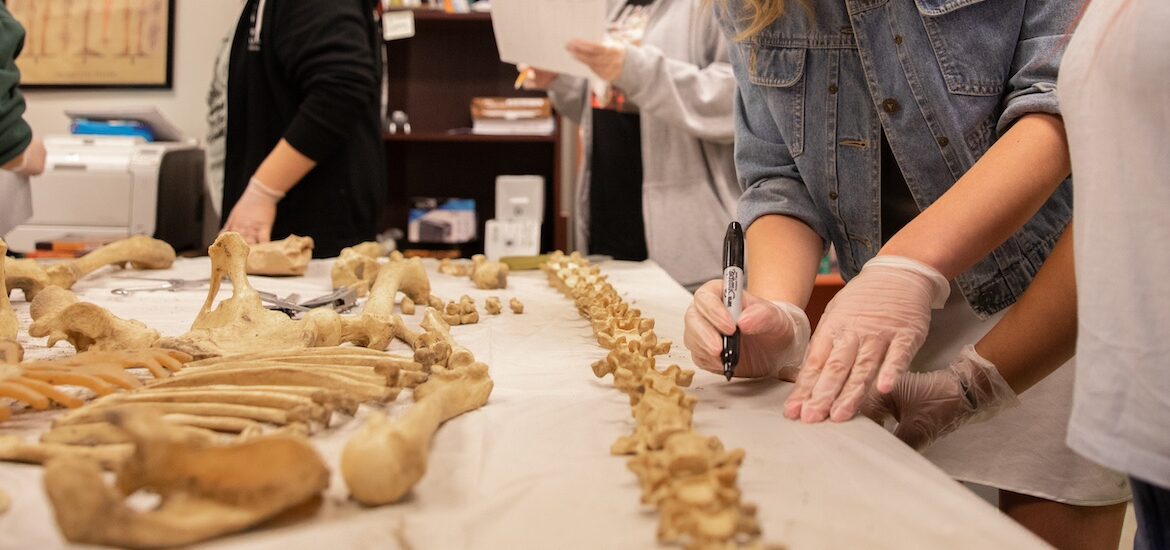
Rowan University’s Bachelor’s of Anthropology Degree Provides Grads with Foundation for Success Anthropology, the study of human societies, cultures, and their development, offers a comprehensive understanding of the complexities of human behavior and social structures. This broad perspective equips graduates with versatile skills applicable across various industries. Rowan University’s anthropology program, with options to either […]
Two Cybersecurity Graduate Students Share Professional Goals
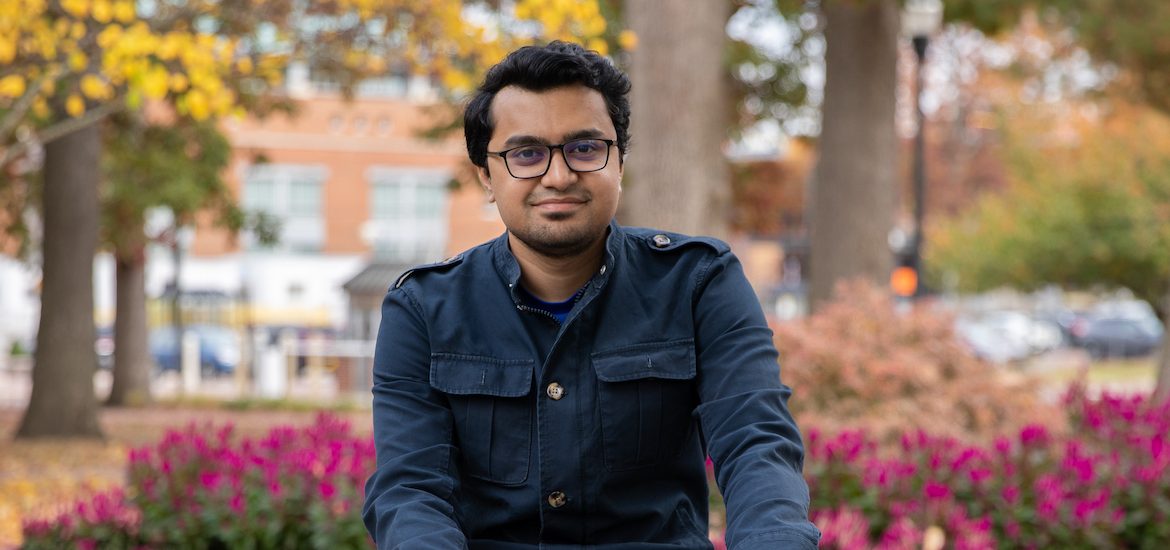
This story is one within a multi-part series highlighting the aspirations, hopes and dreams of a few of Rowan University’s international students. Read the other stories. Meet Sultan from Hyderabad, India and Joseph from Sierra Leone, two graduate students pursuing masters’ degrees in Cybersecurity. What is your long-term professional goal or dream career? “To help […]
The Versatility of a Physics Degree: Beyond the Math [VIDEO]
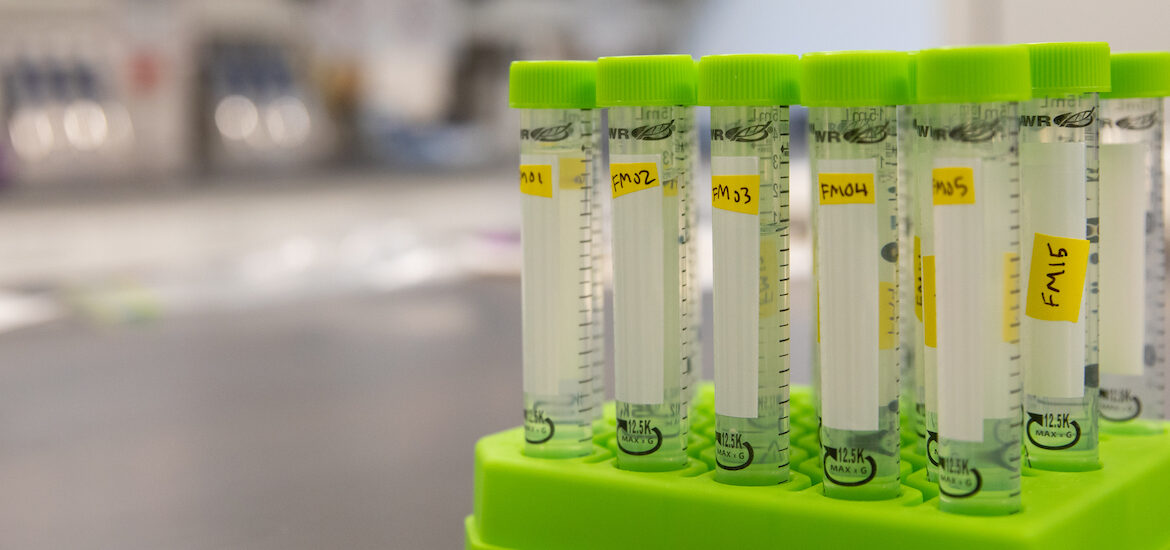
Have you ever wondered what you can do with a physics degree? Or what path could it take you on for your future? Natalie Page, a doctoral candidate studying Materials Science & Engineering, is here to tell you more about what physics means to her. The opportunities are endless with a physics degree. Not only […]
Language and Culture: Preparing Global Citizens
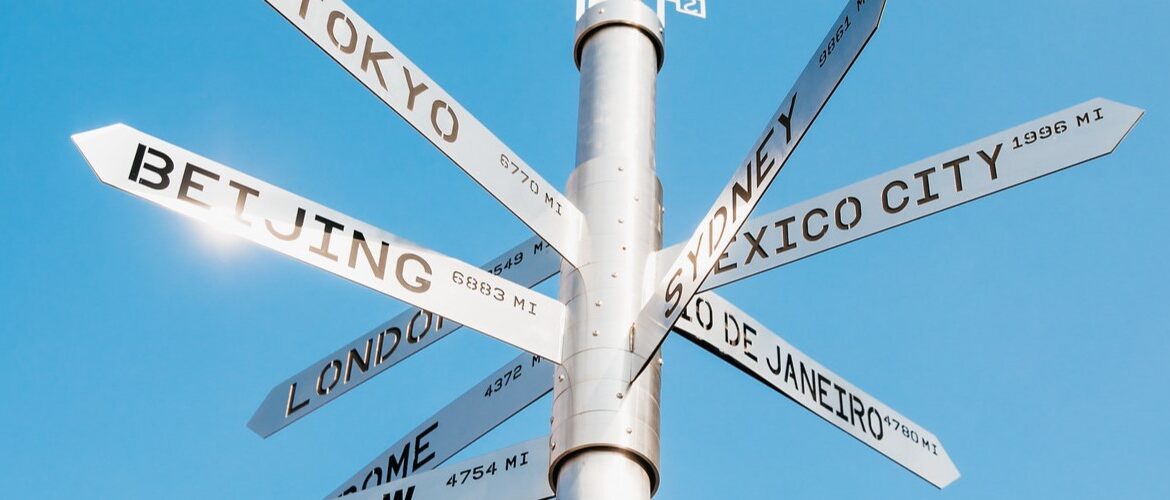
Faculty chairperson & alumni answer: How does a world languages degree benefit students? The Department of World Languages at Rowan University, led by Dr. Marilyn S. Manley, is committed to preparing students for active participation in language exploration and cultural understanding. The department offers a diverse array of courses and academic programs in American Sign Language, Arabic, […]
Alumni Success: The Blending of Two Degrees
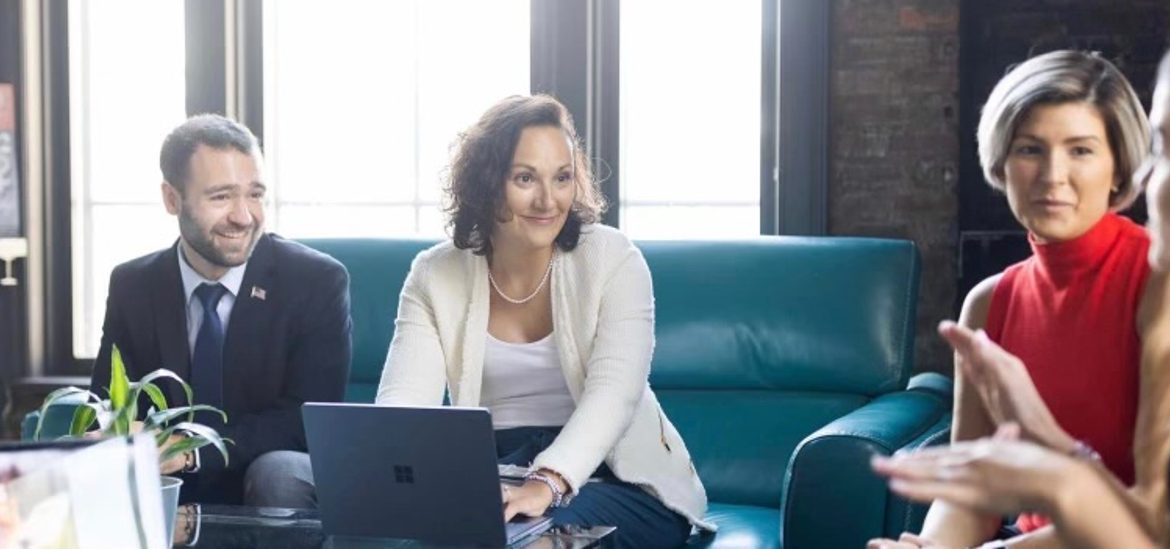
Rowan University Political Science & Communication Studies Graduate Details Launching His Post-College Career After graduating from Rowan University in 2019 with two bachelors’ degrees, one in communication studies and the other political science, Conor Schmiegel’s career would take him in a variety of directions with a variety of ebbs and flows that leverage both of […]
Going Away to College Close To Home: Glassboro Resident
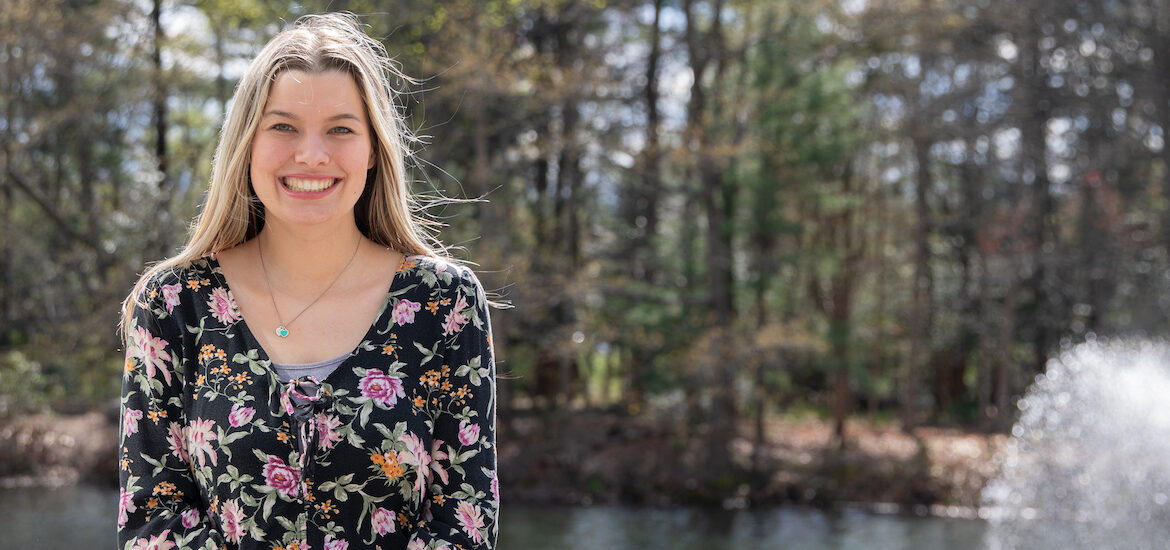
When Going Away To College & Your Hometown Are The Same ZIP Code Meet Lauren K. a sophomore psychology major with a minor in Theatre. Lauren is from Glassboro, NJ, which is the town where Rowan University is located. In fact, Lauren’s home is five minutes from campus. This past year she lived on campus in one of the […]
Marching Band, Episode 3: Building A Band [VIDEO]
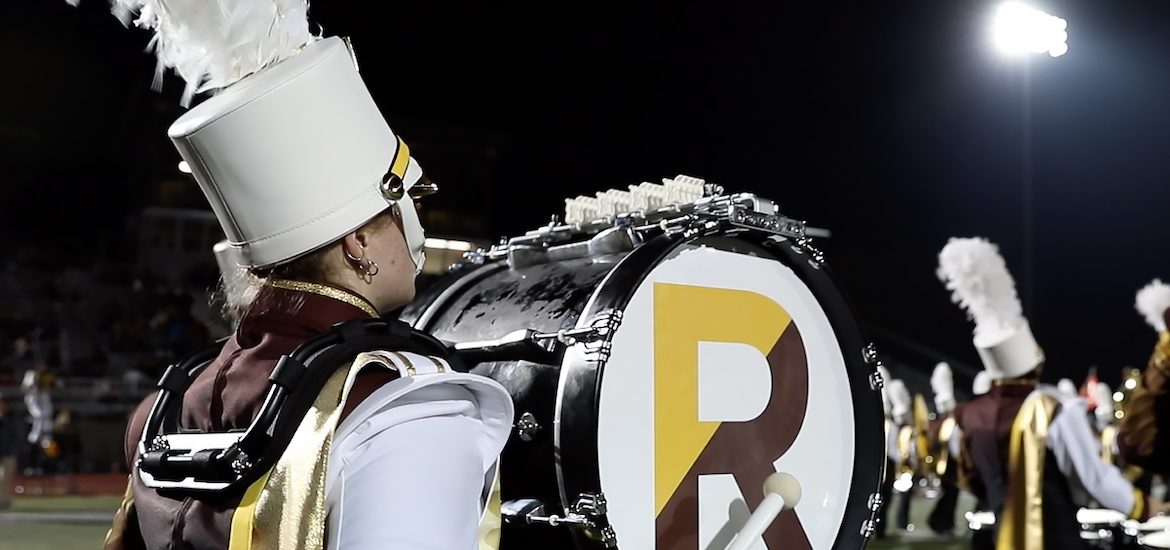
Rowan University’s Newly Created Marching Band Gives All Students the Opportunity for Self-Expression How did Rowan’s Marching Band “Pride of the Profs” come to be? In this video, you will hear from the Dean of the College of Performing Arts Richard Dammers, benefactor John H. Martinson and Director of Band Megan Cooney. Check it out […]
Concert Choir Student Shares Transformative Journey
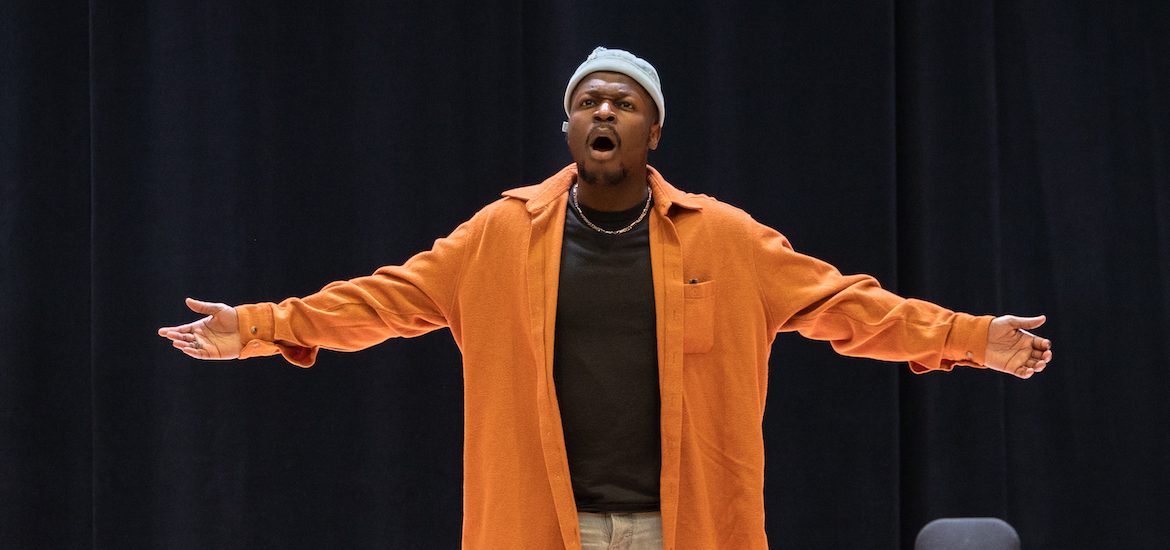
Vocal Performance Major Achieves a Childhood Dream Through Rowan University’s Concert Choir Class [Editor update : since we first spoke with Moses, he has since graduated with a bachelor of music.] A senior from Trenton, NJ (Mercer County) who transferred to Rowan University from Mercer County College, Moses Possible has been a member of the […]
Students Witness Once-in-a-Lifetime Astronomy Event [VIDEO]
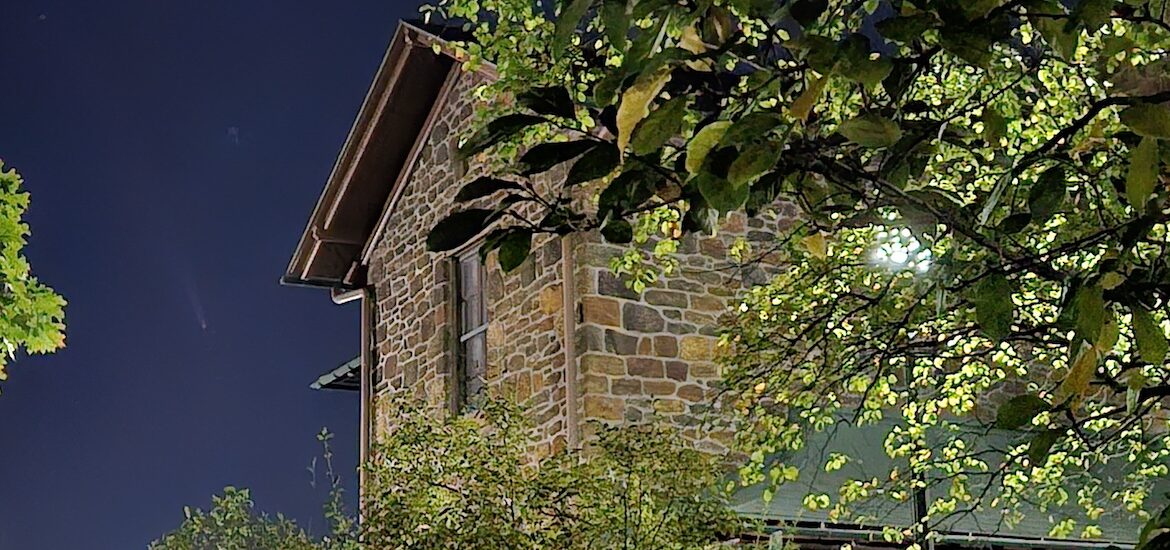
Astronomy faculty at Rowan University invite students across campus to experience rare comet from observation deck of Science Hall If you’ve ever dreamed of stargazing or witnessing rare celestial events, Rowan University is the perfect place to make that dream a reality. Last week the campus hosted an incredible comet viewing event, attracting students, faculty, […]
Fostering Creativity: Empowering Future Art Educators[VIDEO]
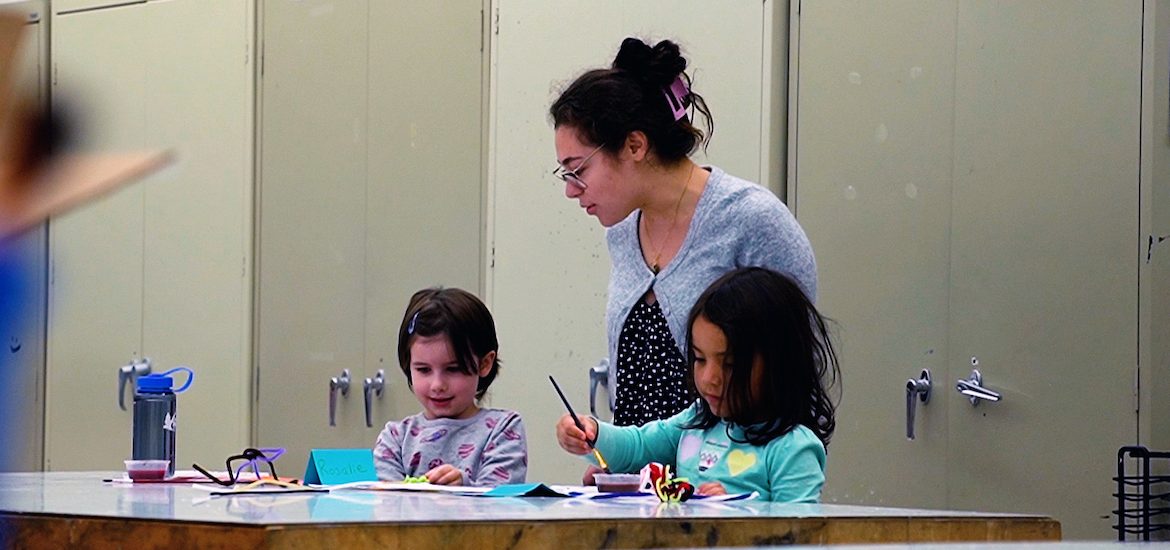
Local elementary school and middle school students create art with class taught by Rowan University art education majors Saturday Morning Art (smART) is a program for students in kindergarten through eighth grade that offers art classes. The teachers are students from Rowan who create lesson plans for each week. Every Wednesday, there is a class […]
Professional Goals of One Biomedical Engineering Student
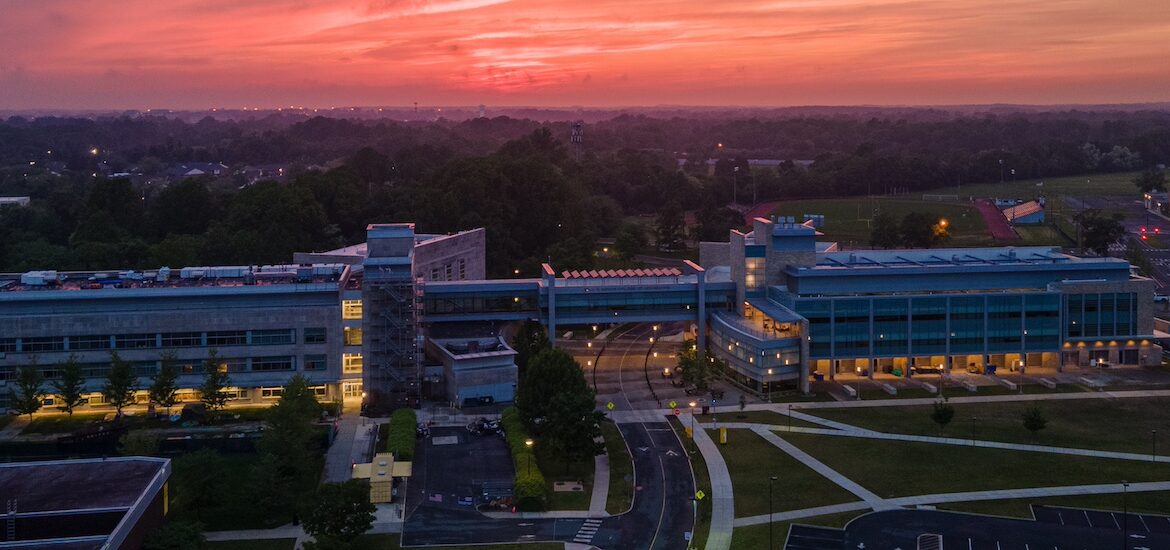
A Brief Glimpse Inside the Biomedical Engineering Program at Rowan University Meet Nia B., a senior Biomedical Engineering major. When we spoke with Nia this summer as a rising senior who had recently completed her junior year, she shared that one of her most immediate goals was for this fall: to land an internship this […]
Professional Goals of One Rowan University Advertising Major
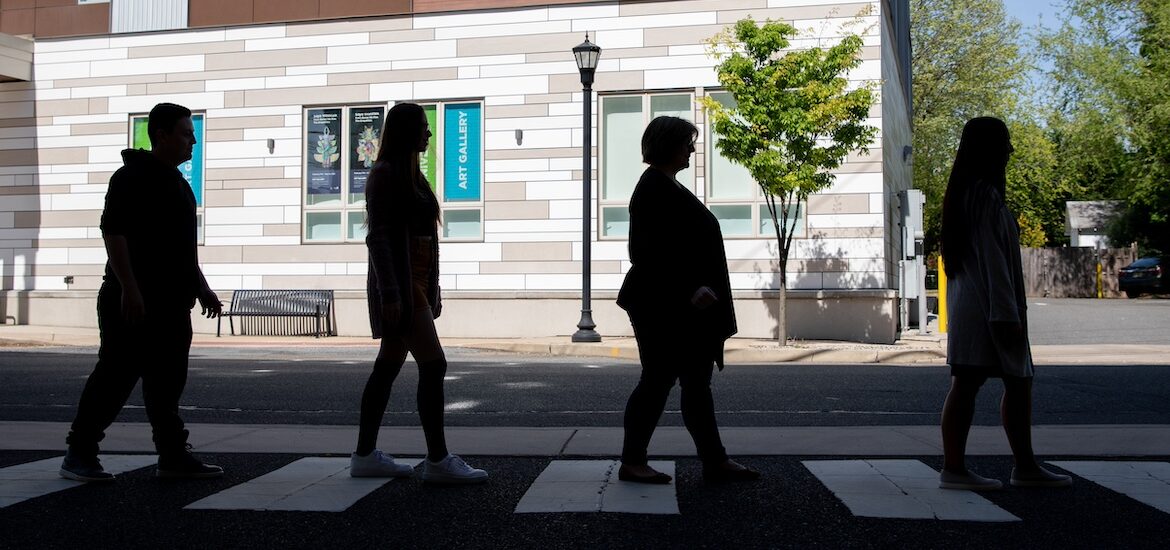
A Brief Glimpse Inside the Advertising Program at Rowan University Meet Nathan A, a recently graduated Advertising major and Rowan College of South Jersey transfer student. When we spoke with Nathan last semester, he was wrapping up his last coursework to earn both a bachelor’s of art in advertising, as well as a bachelor’s of […]
Exercise Is Medicine: Promoting Fitness at Rowan
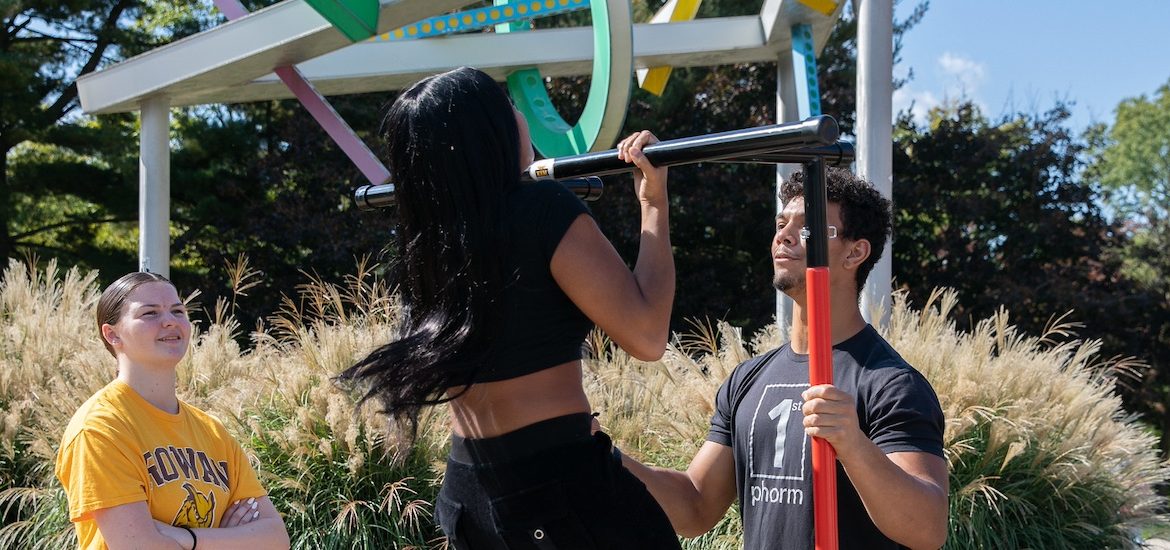
Rowan University’s Exercise Science Program Shapes Futures, Both In and Outside of the Classroom Kevin Rice, president of the Exercise is Medicine club, tells the story of how Rowan helped him further his success in the exercise science field. Graduating senior exercise science major Kevin Rice says exercise science wasn’t always his path. As different […]
Three International Studies Majors Share Their Professional Goals
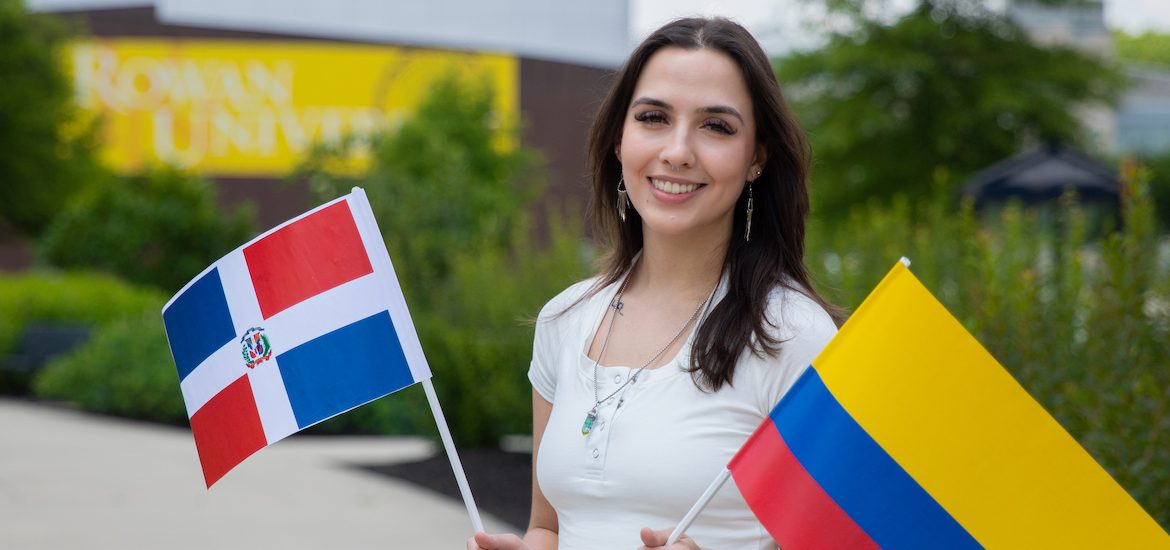
Three transfer students to Rowan University share their very different goals and intended career paths as International Studies majors. As a major, international studies blends disciplines to deepen students’ understanding of the world. Six concentrations – international politics, economics, geography, languages, history and cultures – allow students to customize their path to fit their dreams […]
My Favorite Class: Ballroom Dance [VIDEO]
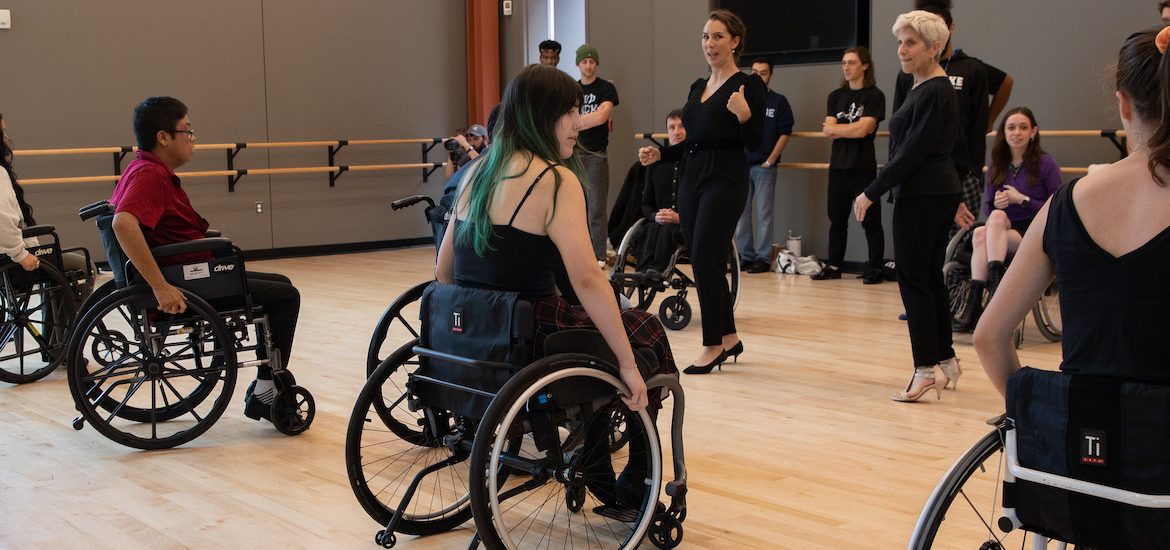
This story is a part of the “My Favorite Class” series. With 100+ majors and countless areas of faculty expertise across campus, dip into one of these classes to fulfill your Rowan University course requirements. Meet Gillian F. a transfer student junior mathematics major from Somerset County, NJ and Kieran M. a transfer student senior philosophy […]
My Favorite Class: Observational Astronomy [VIDEO]
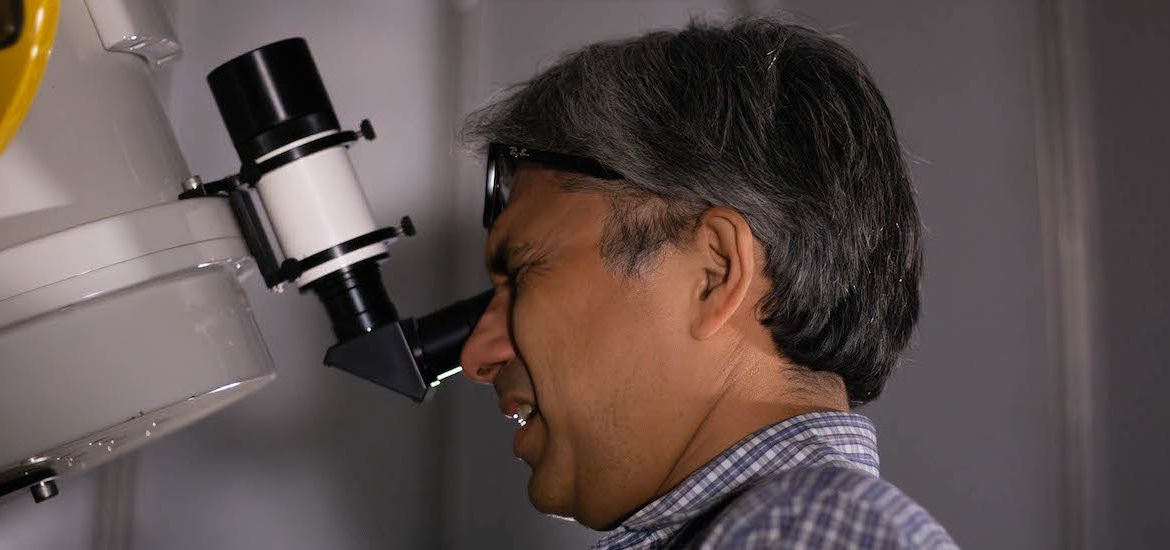
This story is a part of the “My Favorite Class” series. With 100+ majors and countless areas of faculty expertise across campus, dip into one of these classes to fulfill your Rowan University course requirements. A science class so interesting to even non-STEM majors take it as an elective, Observational Astronomy (ASTR 11240). Observational Astronomy offers students […]
Entrepreneurship Student on Opportunities at Rowan
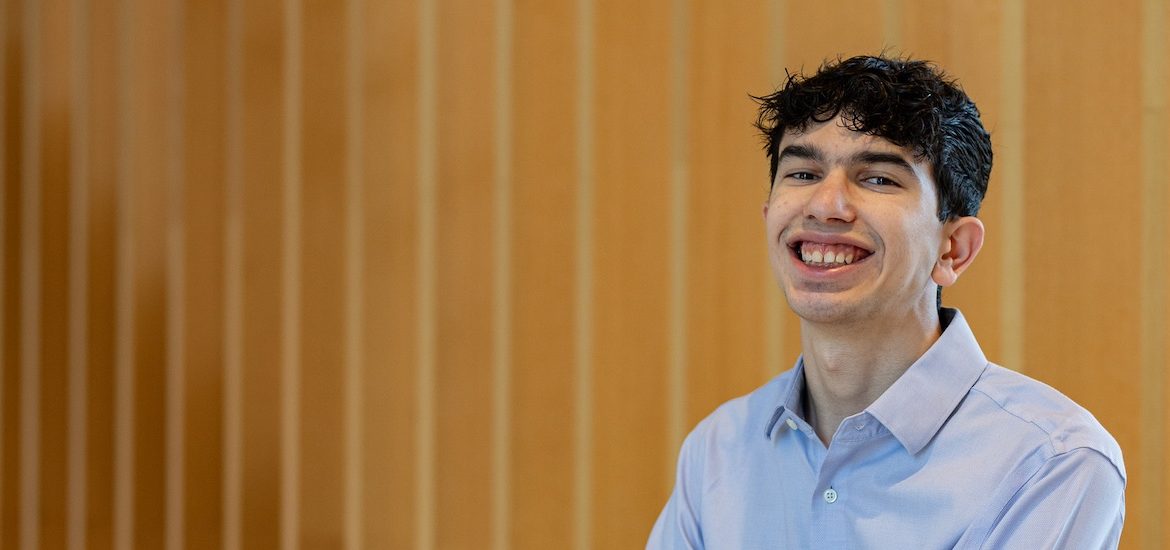
Trevor D. a recently graduated senior Entrepreneurship major, talks about his experience in the program and the work he has experienced in the field to help to build the foundation for his post-graduation life. With a long work history already, graduating senior Trevor D. reflects: “I work at one of the largest collision repair centers […]
University Chorus Member Encourages Others to Join
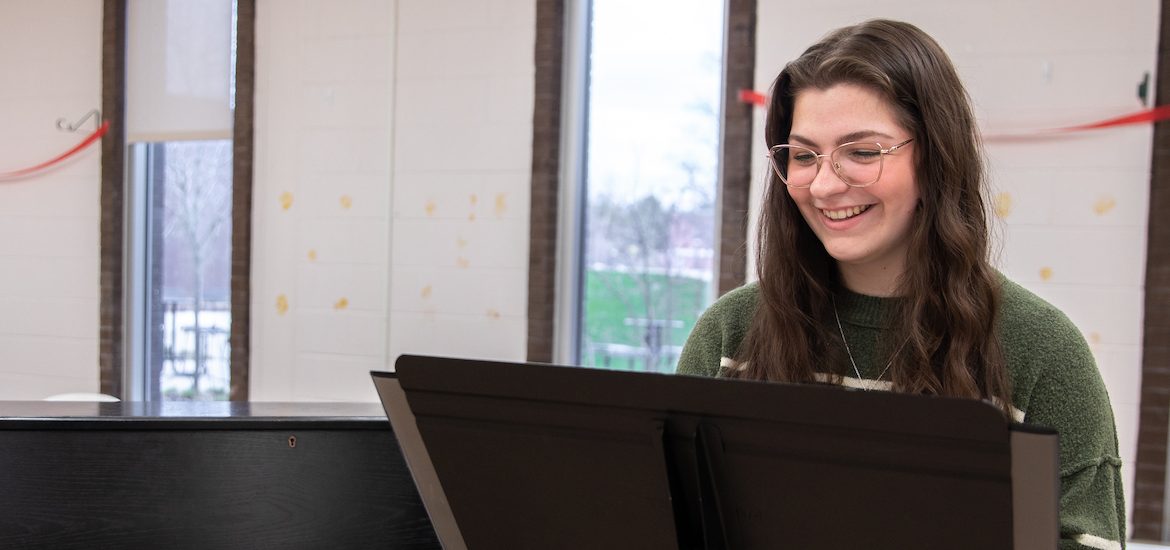
Meet Hannah P. a junior Theatre Arts major with a Musical Theatre Concentration from Raleigh, North Carolina, and a member of the University Chorus (UChorus). During my time in UChorus, I have learned that no matter what your background is with singing, or what your major is, there is a way to join an ensemble and […]
Purposeful & Powerful: Master of Social Work Launches
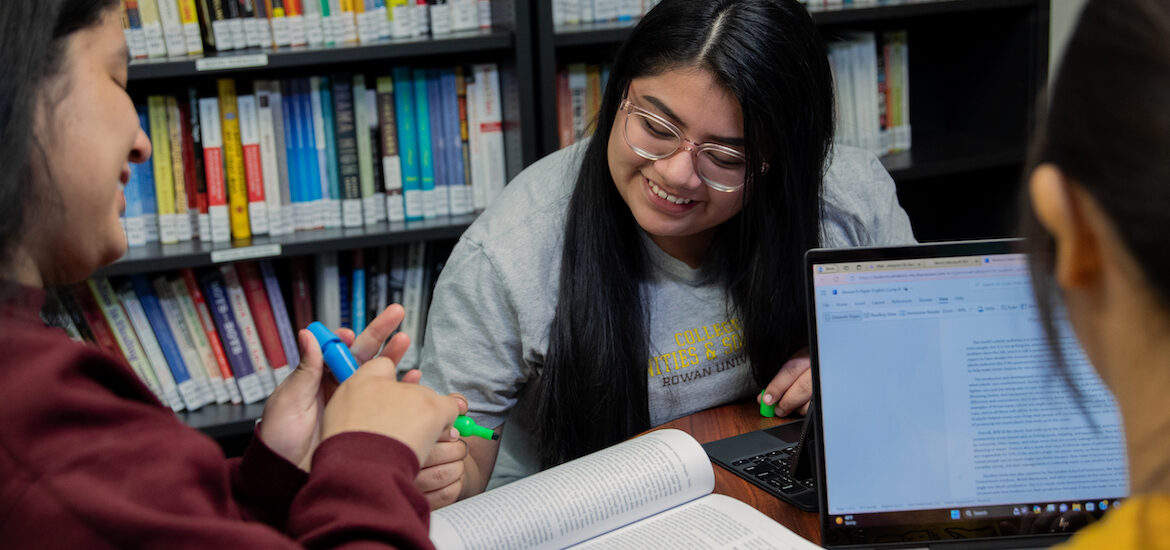
Rowan University’s Master of Social Work (MSW) Program Inspires Students & Their Futures Rowan University’s newly launched Master of Social Work has been a labor of love two years in the making. Led by program director Dr. Mary Kay Tuohy, who holds a doctorate in clinical social work from the University of Pennsylvania, and director […]
My Favorite Class: Honors Public Speaking
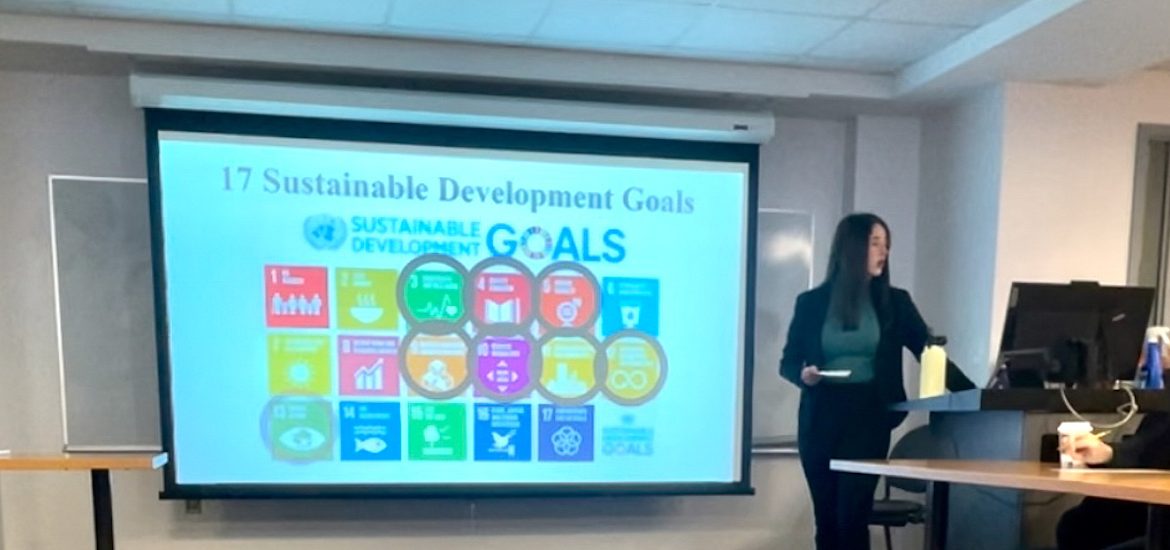
This story is a part of the “My Favorite Class” series. With 100+ majors and countless areas of faculty expertise across campus, dip into one of these classes to fulfill your Rowan University course requirements. Meet Jordyn D. a junior Dance & Elementary Education double major and a member of the John H Martinson Honors […]
- Arts
- ...
Music Industry Major Alyssa M. Shares Her Professional Goals
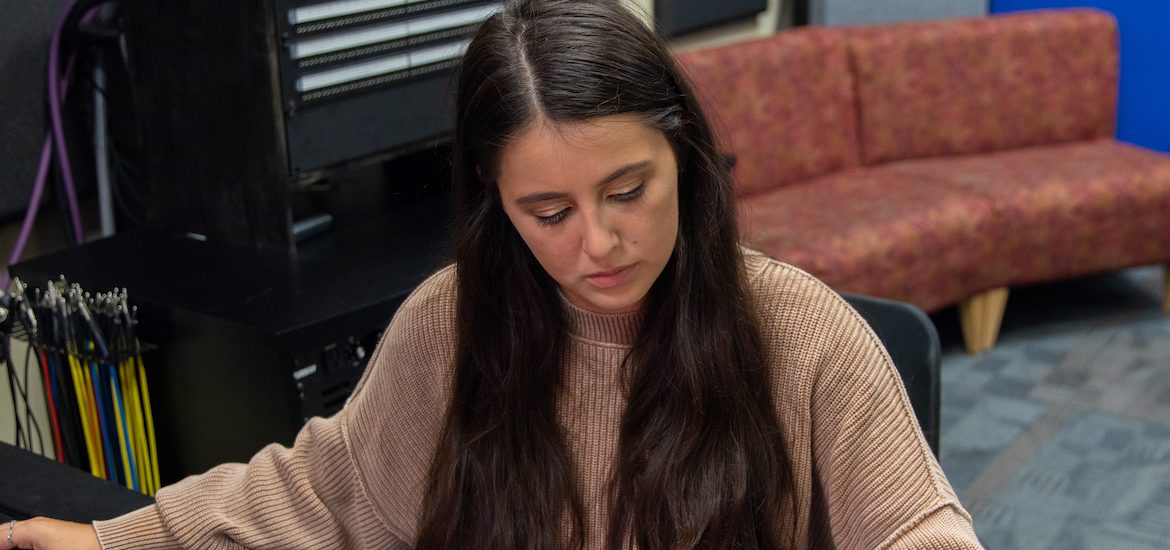
Meet Alyssa M. a graduating senior music industry major with a minor in entrepreneurship. Alyssa is here to share her short-term and long-term professional goals. Could you describe your short-term professional goals? “I would love to get my foot in the door by doing sound for more local venues to gain more experience. Also, I am […]
Art Education: Blending Creativity and Teaching [VIDEO]
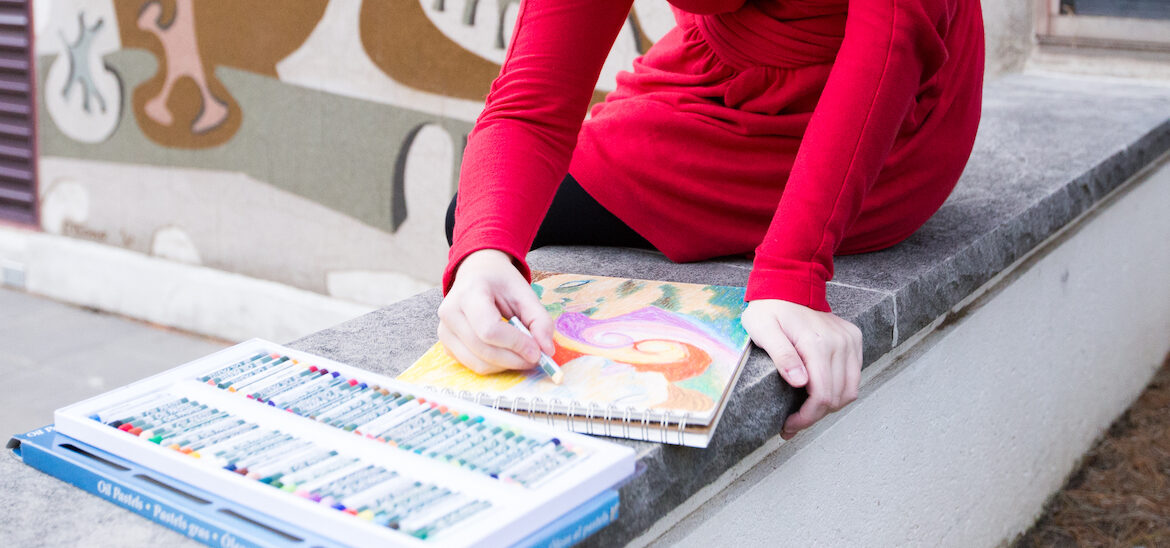
Meet senior Gabrielle K. as she shares her love and passion for art education. Like what you see? LEARN MORE
A Glimpse Inside Biomedical Art and Visualization
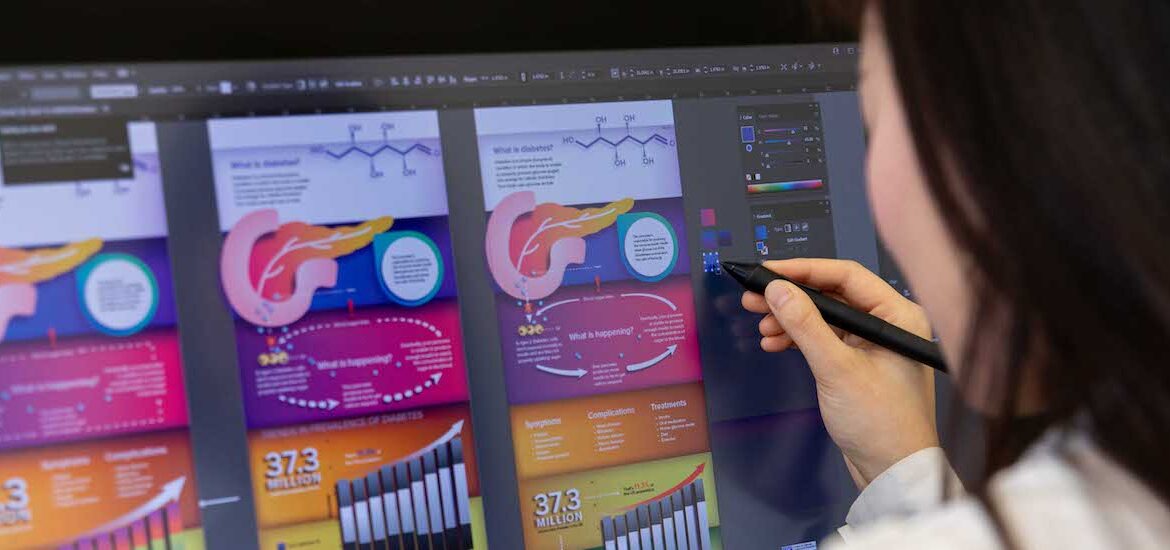
Meet Lauren B. a senior Biomedical Art and Visualization major, and a member of the John H Martinson Honors College. LEARN MORE
Environmental Science, a Multi-Disciplinary Approach [VIDEO]
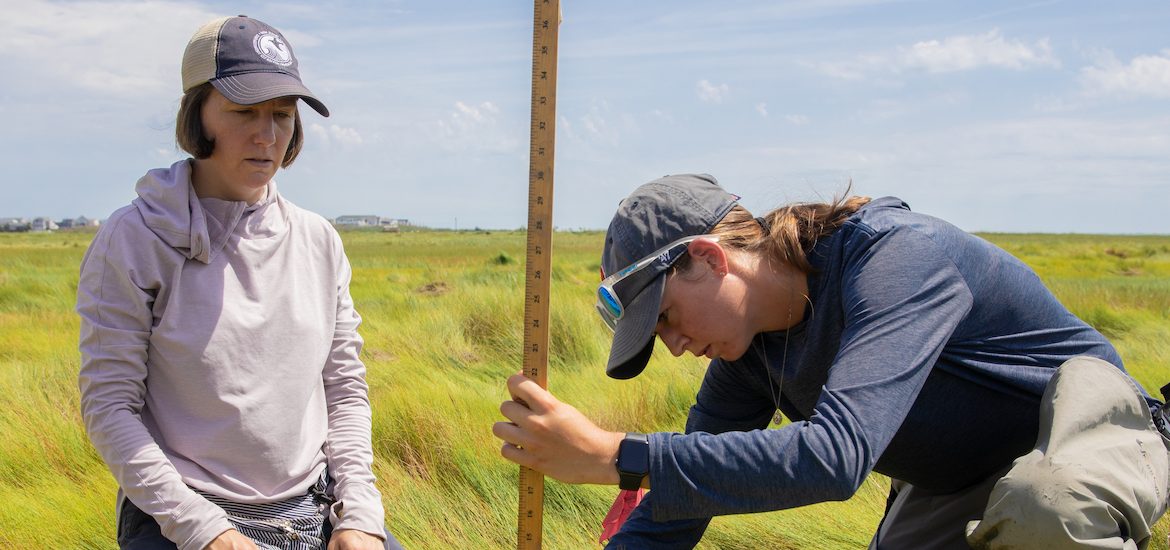
Environmental science majors integrate the foundations of biology, chemistry, physics and other core STEM disciplines with their understanding of environmental issues. In this video, we hear from Kriish H. a recent environmental science graduate. Kriish grew up in Mumbai, India, in proximity to the industries, which led directly to his professional goals today:
Transfer Nutrition & Dietetics Majors Share Their Goals

Meet transfer Nutrition & Dietetics majors Kathleen R., Diana T. and Monique P. as they share their professional goals within the healthcare industry. Could you describe your short-term professional goals? “I currently just have short-term goals within the semesters to at least get As and to be on the Dean’s list. Also I would like […]
My Favorite Class: Puppetry & Video Creation [VIDEO]

Meet Grace F. a senior English major and Raven V. a sophomore environmental & sustainability studies major. They are sharing memories from their favorite class, Puppetry. Senior Grace F.spends a lot of time on the opposite end of creativity, including time spent in writing and directing. Grace does more behind the scenes work for artists. […]
Two Computer Science Graduate Students at Rowan

This story is one within a multi-part series highlighting the aspirations, hopes and dreams of a few of Rowan University’s international students. Read the other stories. Meet Durga P. from India and Tarun T. from India, two graduate students in the computer science program. What is your long-term professional goal or dream career? “I want […]
Writing Creative Non-Fiction, My Favorite Class at Rowan

This story is a part of the “My Favorite Class” series. With 100+ majors and countless areas of faculty expertise across campus, dip into one of these classes to fulfill your Rowan University course requirements. [Editor review and update November 15, 2024.] As I complete my final semester here at Rowan University, I’ve taken a vast […]
Can You Teach Someone Entrepreneurship? This Alumnus Does

From Classroom to CEO: Unveiling the Success Story of Anthony Magaraci, a Rowan Entrepreneurship Alumnus Anthony Magaraci, Entrepreneurship ‘06 alum, gives insight on his successes since graduating from Rowan’s entrepreneurship program. A member of the inaugural class of the entrepreneurship program within the William G. Rohrer College of Business, Anthony Magaraci graduated in 2006 alongside […]
Mapping a Path to Success Through GIS [VIDEO]

Explore the benefits of incorporating GIS into your academic major, regardless of your field of interest. Discover how GIS courses can equip you with valuable skills that will complement your chosen career path.
Favorite Class: Teaching Dance in Physical Education [VIDEO]

As students are learning these dances, they have the opportunity to practice their teaching methods on preschool students, at the on-site Rowan University Early Childhood Demonstration Center housed within James Hall, the education building. “It’s learning how to be hands-on, which goes into depth on how to teach step-by-step so a preschooler can understand,” says […]
Human Services, Leading & Impacting Lives [VIDEO]

Human Service professionals work with diverse populations providing a wide variety of social, personal and health services depending on need. Potential career paths include becoming a case worker, social advocate, welfare service professional, child welfare professional or law enforcement. Meet adult learner Dimirra B. a senior human services major who aspires to continue to be […]
A Path to Public Health: Health & Science Communication Major’s Journey and Professional Goals [VIDEO]

Exploring Health & Science Communication: Insights and Achievements from Sedrick G. Meet Sedrick G., a senior health & science communication major and transfer student from Mays Landing, NJ (Atlantic County.) How Will a Health & Science Communication Degree Support Your Goals? This degree will help support my dreams and goals because between my coursework, lived […]
5 Public Relations Majors Share Their Professional Goals
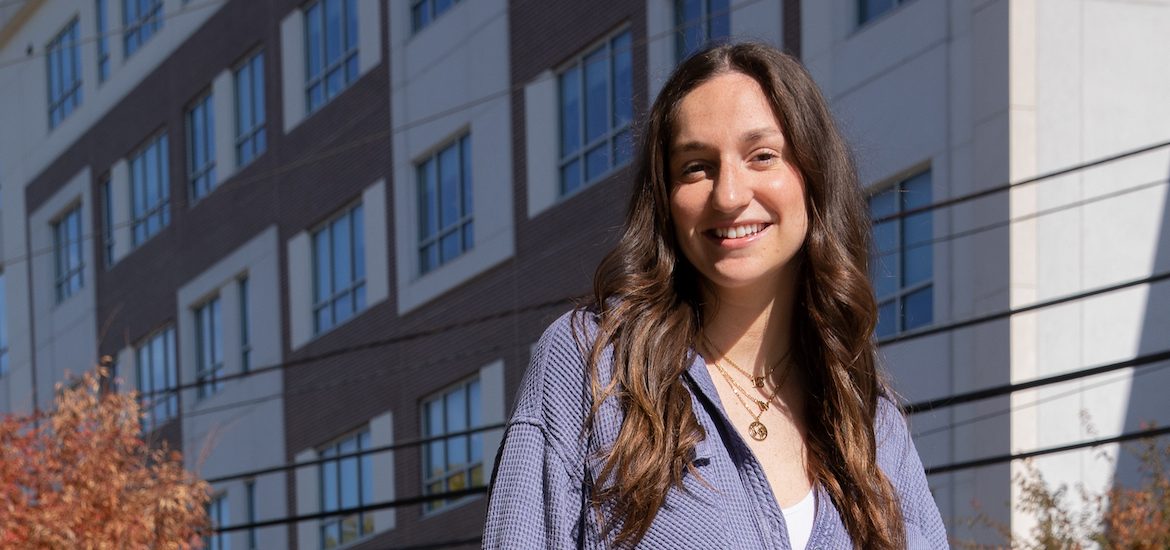
Meet five public relations majors as they each share their professional aspirations once they earn their bachelor’s degree in public relations or master’s degree in strategic communication. To earn a bachelor’s degree at Rowan University, students take 30 credits (10 classes) of core public relations classes in their majro, plus 9 credits (3 classes) of […]
One Floridian Rowan Student on Experiencing Four Seasons

Having a first snowball fight, getting used to not pumping gas and enjoying sweater weather Meet Alec L. a senior theatre major with concentrations in acting, directing, musical theatre, and theatre education, a minor in creative writing and a CUGS (certificate of undergraduate study) in Shakespearean studies. Read about Alec’s experiences from moving from Orlando, […]
Anthropology Majors Share Their Professional Goals
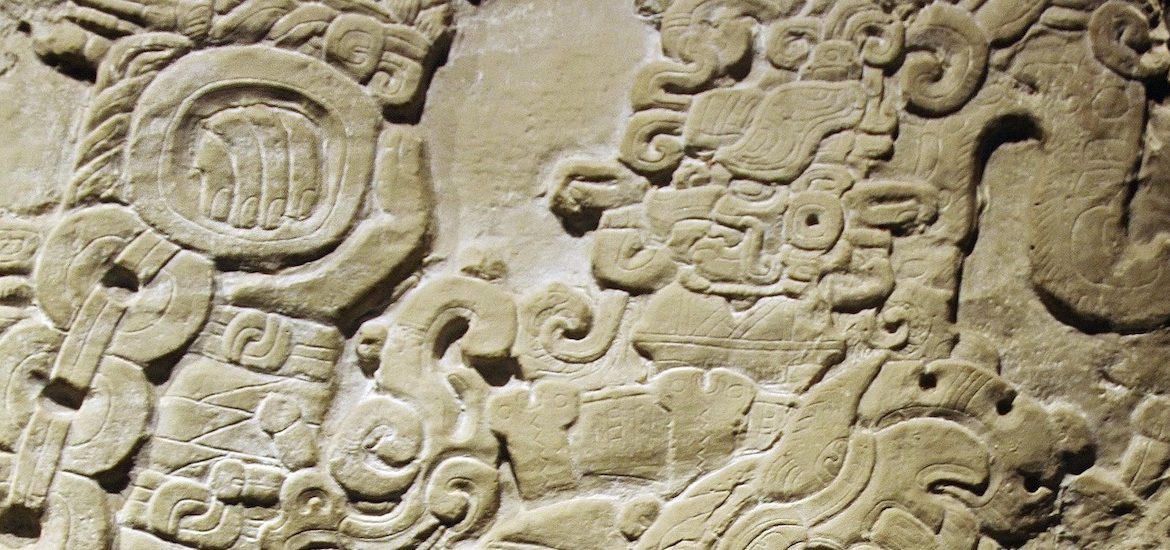
Anthropology is the scientific and humanistic approach understanding human origins, and biological and cultural diversity. Potential career paths can include becoming an anthropologist, archeologist, forensic science technician, curator, medical scientist, museum technician and conservator or geographer. Meet anthropology majors Nicole A., Goldie B. & Nicholas T. as they share their professional goals in their field. […]
Bangladeshi Student Thrives in Computer Science at Rowan University

This story is one within a multi-part series highlighting the aspirations, hopes and dreams of a few of Rowan University’s international students. Read the other stories. Meet Tilpa M. P., a graduate student and international student from Dhaka, Bangladesh, studying for her master’s degree in computer science. How will this degree support your dreams and […]
Dance Majors Share Their Professional Goals

Meet senior dance majors Gabrielle L. Alex R. and Gregory W. who will share their professional goals for their futures in the performing arts. Could you describe your short-term professional goals? “After college is over I want to go to grad school for arts administration while being a performer. I want to dance with a […]
Inside Geo Information Systems with Jackie & Danielle

Geographical Information Systems (GIS) majors and graduating seniors, Danielle M. and Jackie G. give insight into what the GIS major entails and its impact. What is GIS? According to Danielle, “geographic information science, it’s the analysis of data sets, the creation of maps, and other imagery.” She went on to give her point of view […]
Nicholas K’s Journey to CERN in Switzerland

A Dive Into the Physics Major at Rowan University With a Graduating Senior Meet Nicholas K, a senior graduating this December, majoring in physics, minoring in astronomy & mathematics, and a CUGS (certificate of undergraduate study) in computer science. Tell us more about your CERN (European Organization for Nuclear Research) experience. “I knew about this […]
Indian Graduate Reflects on His Rowan University Journey

This story is one within a multi-part series highlighting the aspirations, hopes and dreams of a few of Rowan University’s international students. Read the other stories. Meet Somyatanjan R, a graduate student and international student from India, majoring in computer science. What is your long-term professional goal or dream career? “My long-term professional goal is […]
Climate Anxiety: What It Is, and Why It Matters

Understanding Eco-Anxiety: Impact on Mental Health & Coping Strategies Part of a series with Rowan University’s Wellness Center, this collaboration aims to educate students about personal well-being options. For further updates, follow @rowanuwellness on social. Written by Wellness Center intern Kayden H, Writing Arts major Climate change has begun to affect people within our communities in […]
Rowan Entrepreneurship Majors Share Their Professional Goals

Meet Entrepreneurship majors Trevor D, Brendan L, Joe R and David S, all here to share their professional goals for the future. Could you describe your short-term professional goals? “My short-term goal is to work in the auto collision industry, which I have worked in for five years now.” – Trevor D, senior “I’m planning […]
Meet the Professor Who Built Rowan’s Marching Band

Once she got to Rowan, she didn’t know that we were known to be a teaching school at that time. Her professors within the College of Performing Arts really looked out for her; they would sign her up for conducting symposiums and competitions outside of the department. “One of them was my percussion teacher who […]
Unlock Career Success with Rowan’s RIPPAC

RIPPAC’s Growth Under Dr. Dworkin Events and Opportunities For Students The Importance of Internships and Getting Involved Internship & Experiential Learning Stories Learn how Rowan Profs go Beyond the Classroom to grow professionally, as well as personally, through internships and other experiential learning. Experiential learning includes hands-on learning opportunities provided through research, student clubs, campus leadership, student worker jobs, service-learning […]
Pharmaceutical Science Graduate Student’s Career Aspirations

This story is one within a multi-part series highlighting the aspirations, hopes and dreams of a few of Rowan University’s international students. Read the other stories. What Rowan professors or Rowan classes have been most helpful and enlightening to you, and how? “To begin with, the majority of the professors at Rowan University exhibit a […]
Figuring It All Out, At My Own Pace at Rowan
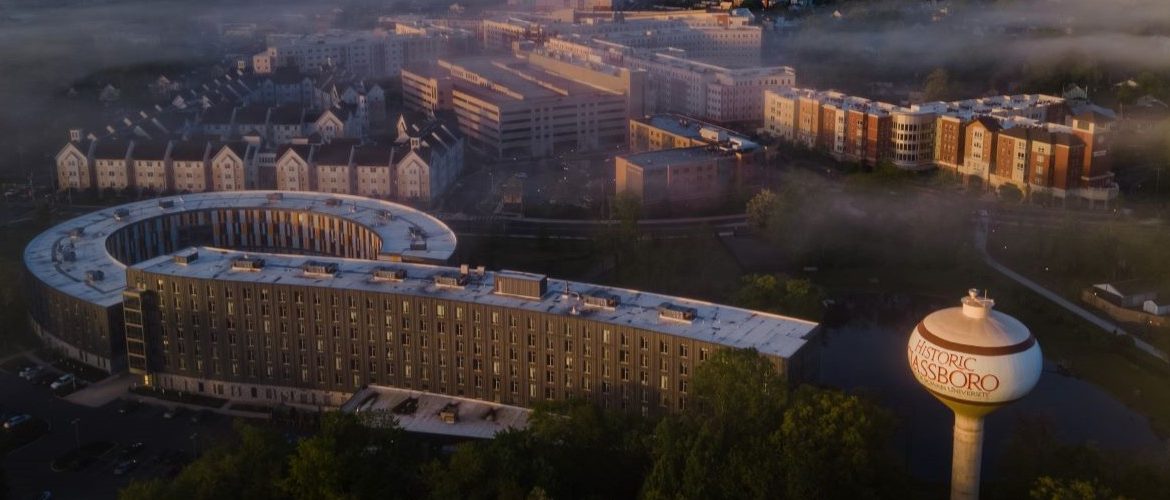
From a lackluster start during Covid, to dropping out, to discovering herself in a new major Kara R, a sophomore advertising major from Swedesboro, NJ (Gloucester County) shares this first-person perspective on the challenges of figuring out her career path, feeling left behind while others seemed to have it all figured out, and the importance of […]
Empowering Dreams: Sreypich H’s UX/UI Design Journey
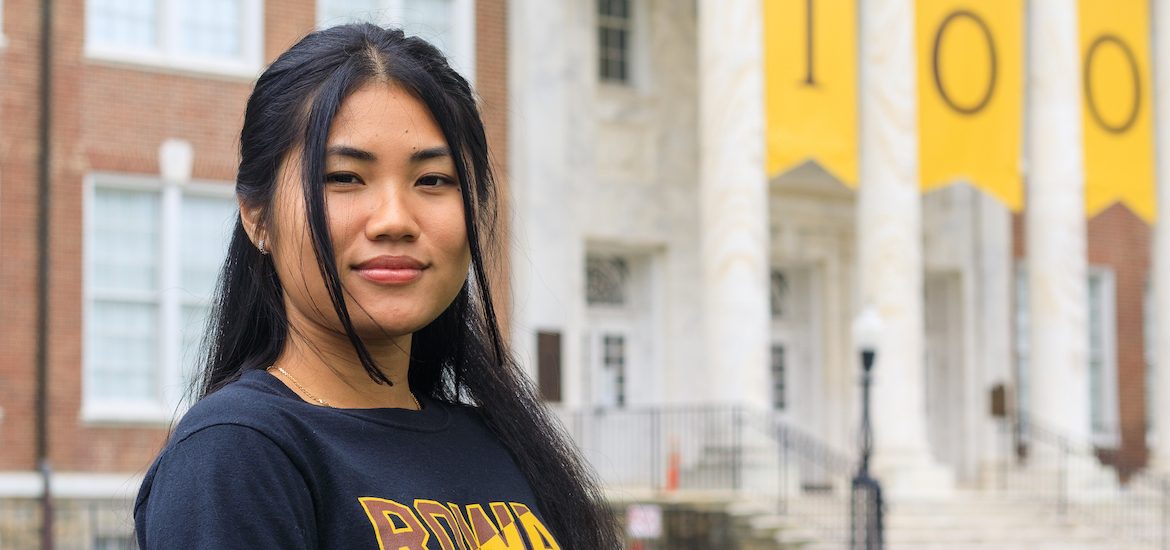
This story is the first in a multi-part series highlighting the aspirations, hopes and dreams of a few of Rowan University’s international students. Read the other stories. Meet Sreypich H, a senior and international student from Phnom Penh, Cambodia, majoring in computer science. What is your long-term professional goal or dream career? “My long-term professional […]
RTF Major from Turkey & Tips for International Students

Academic and Networking Opportunities and Rowan’s Cost Makes It a Strong Fit for This International Student Meet Eren B, a sophomore Radio Television Film major and international student from Istanbul, Turkey. Today we feature his story, specifically his experience as an international student. When he was younger, Eren was interested in acting, and has been […]
Bio Sciences Major on Academics and Campus Life

Nathanael A. is a senior commuting transfer student (from Rowan College of South Jersey) here at Rowan University originally from Lindenwold, New Jersey (Camden County) pursuing a BS in biological sciences; with minors in Pre-Health and Chemistry. When asked what inspired him to choose his major Nathanael shared, “I would like to get to medical […]
National Book Month: Writing & Journalism

The month of October is known as a time centered around witches, pumpkins, and candy of course. However, as werewolves howl at the moon and that first October moon rises, National Book Month also begins! With only 31 days to celebrate Rowan students and faculty weigh on their favorite current and past reads on their […]
Art Grad Laurie Z. Runs Funny Farm Rescue [VIDEO]

“Life happens when you’re busy making other plans,” says art alumna Laurie Z, who never intended to run a farm. Meet Laurie Z, the owner and founder of the Funny Farm Rescue and Sanctuary in Mays Landing, NJ (Atlantic County). Laurie also owns Artsy Graphics, which is a graphic design and photography company. She graduated […]
Alumni Spotlight on Radio/TV/Film Grad

Although this alumnus’s time at Rowan has come to an end, the effects of what he learned during his time at university follow like a trail, literally! Adam Clark of Bridgeton, NJ (Cumberland County) graduated in 2020 with a degree in Radio, Television, and Film (RTF), which he used to launch his career in the […]

